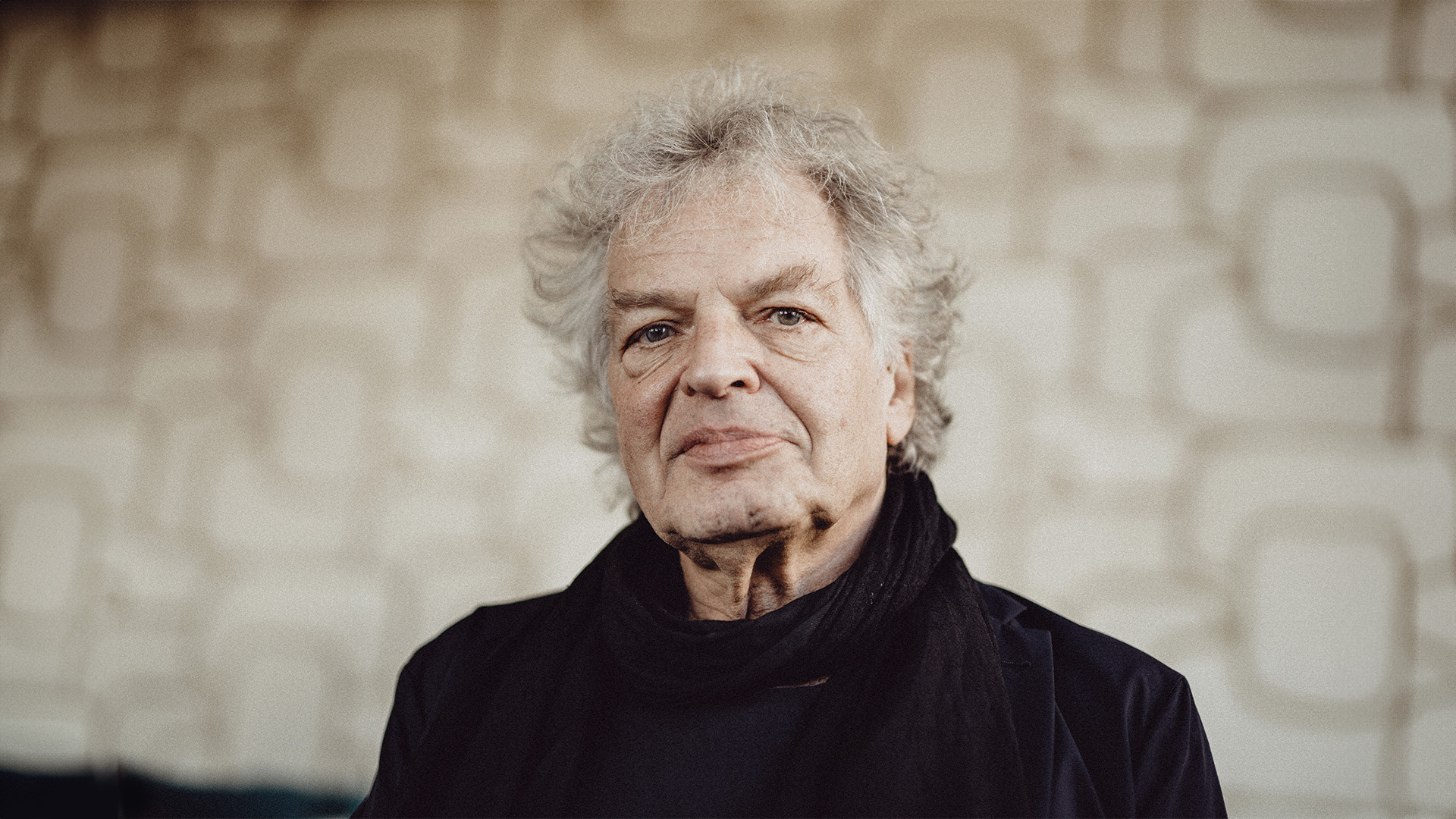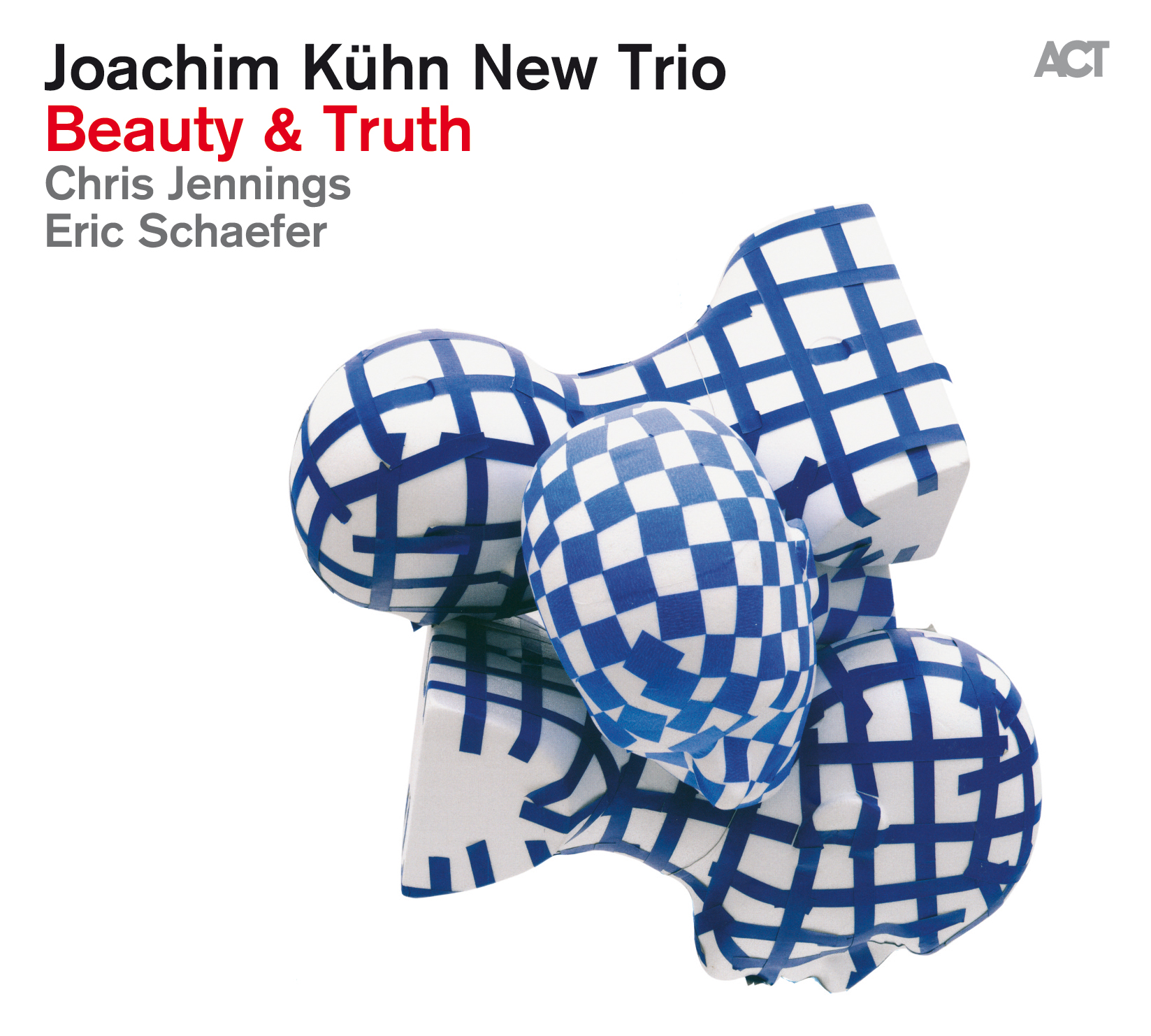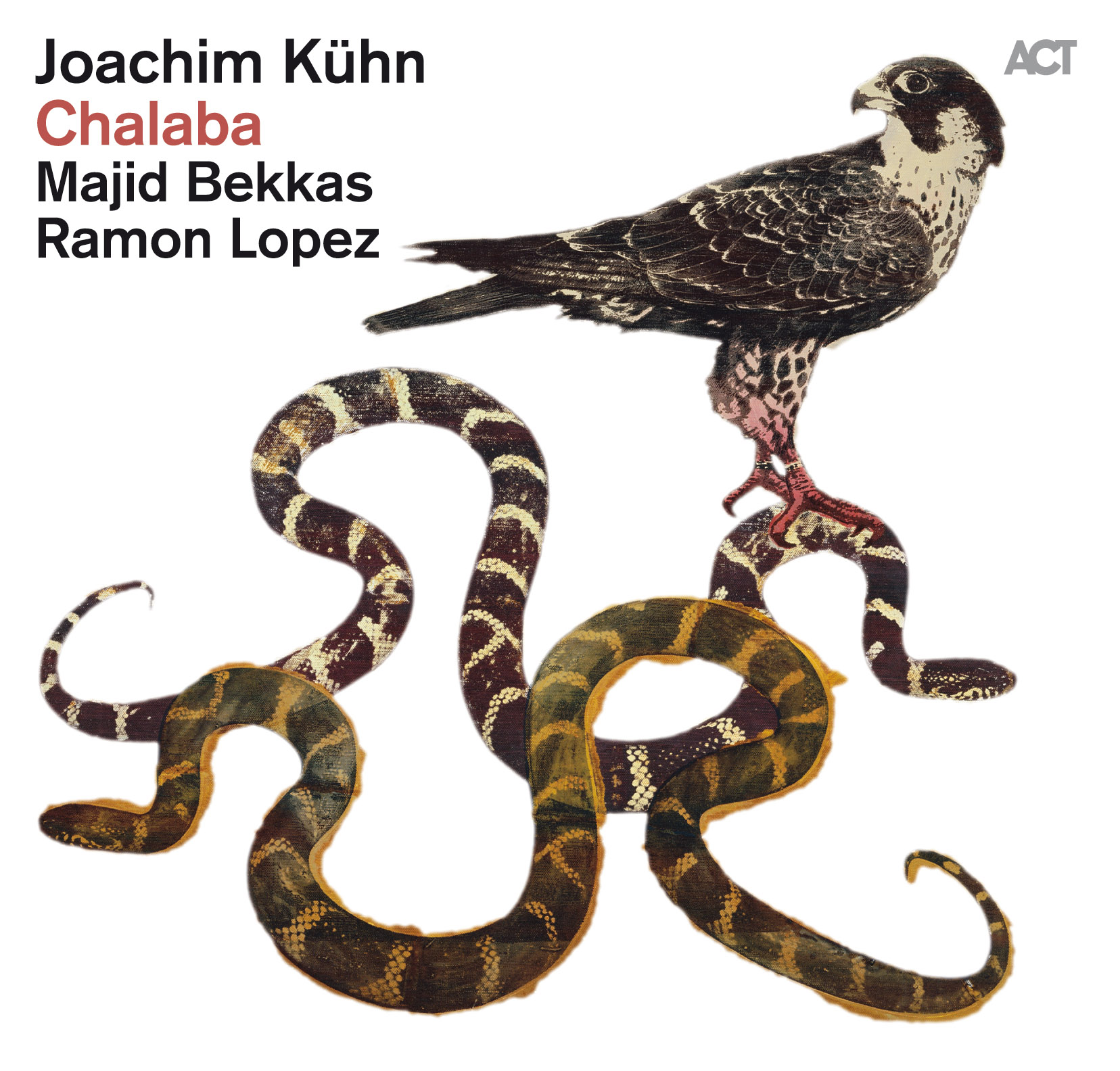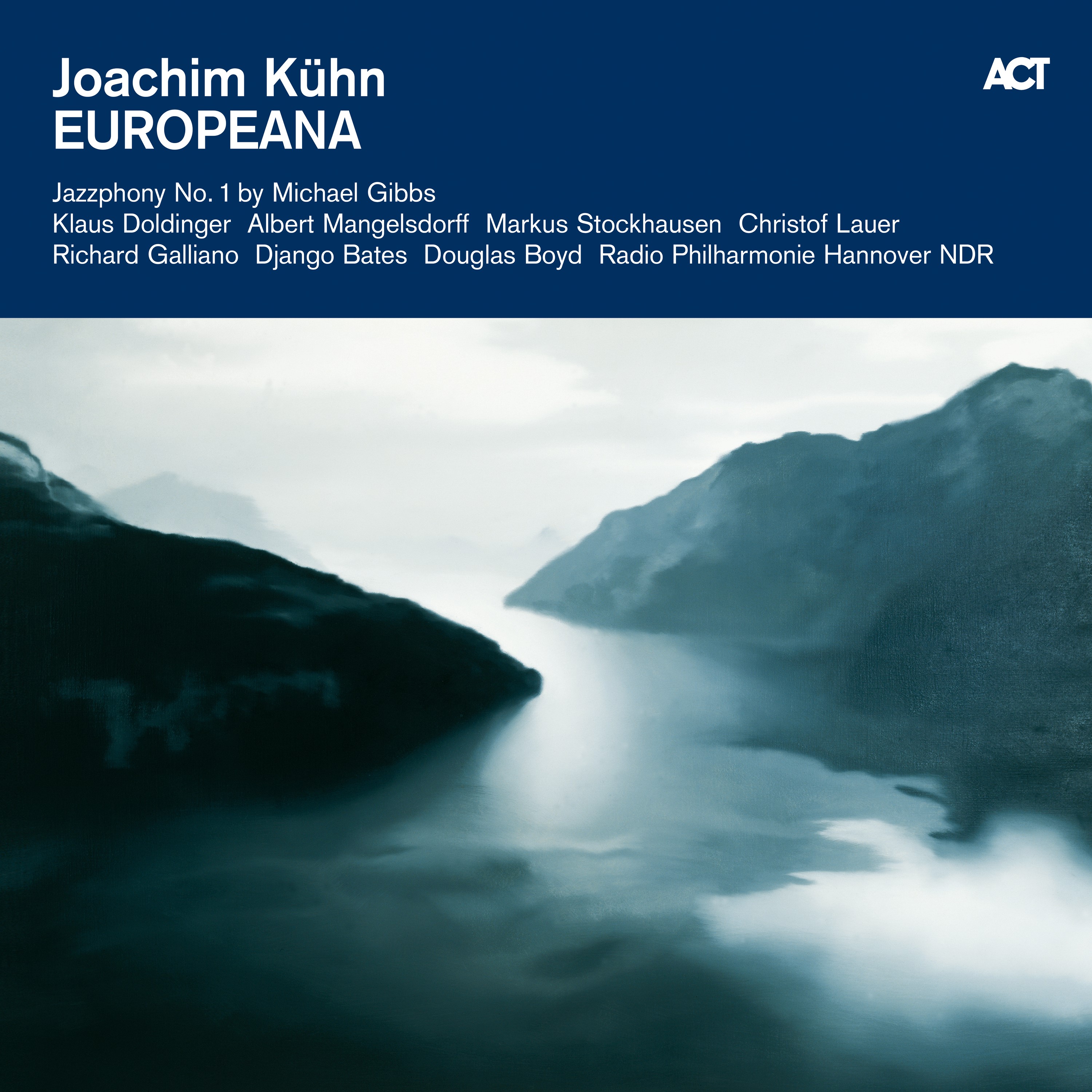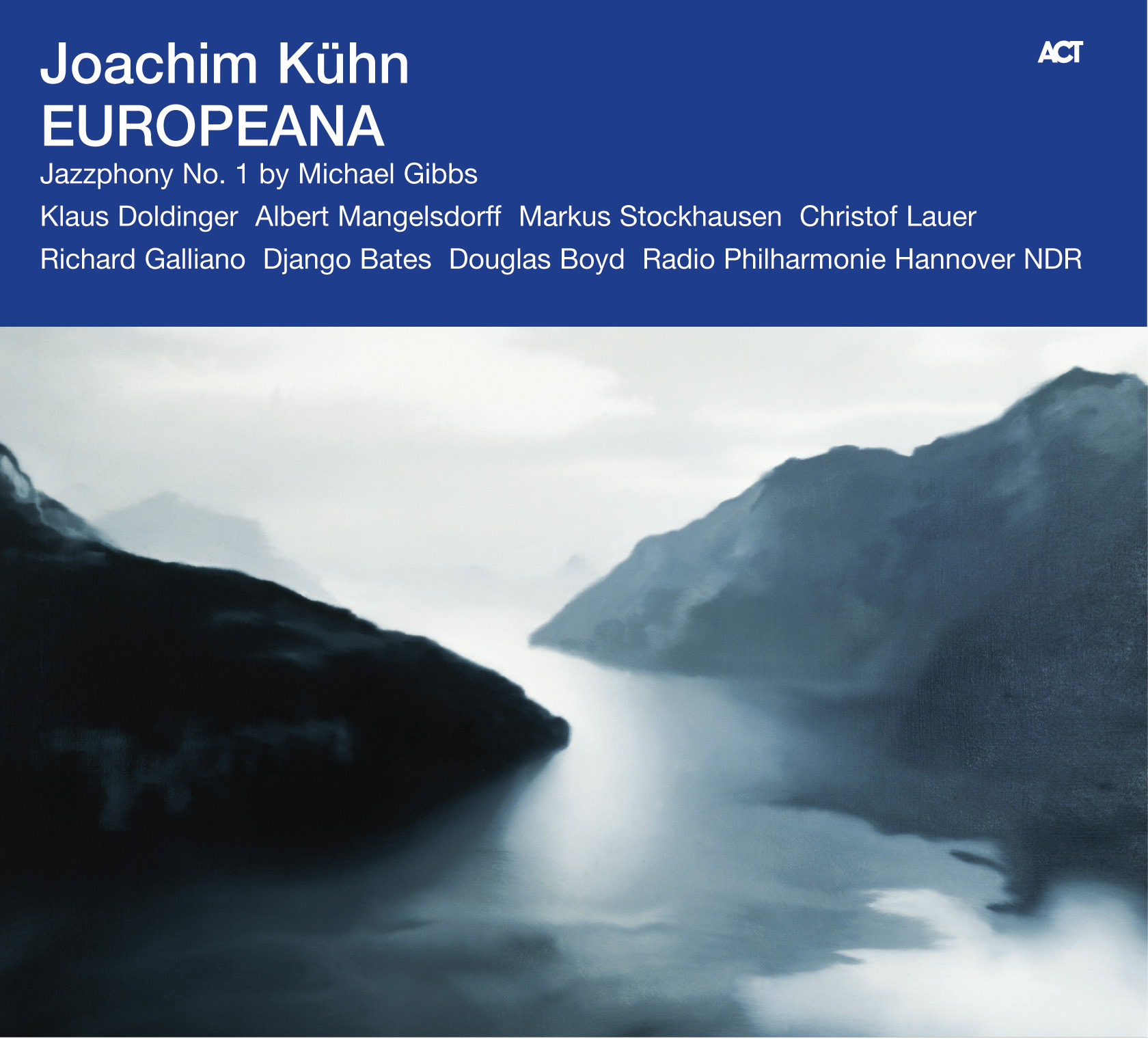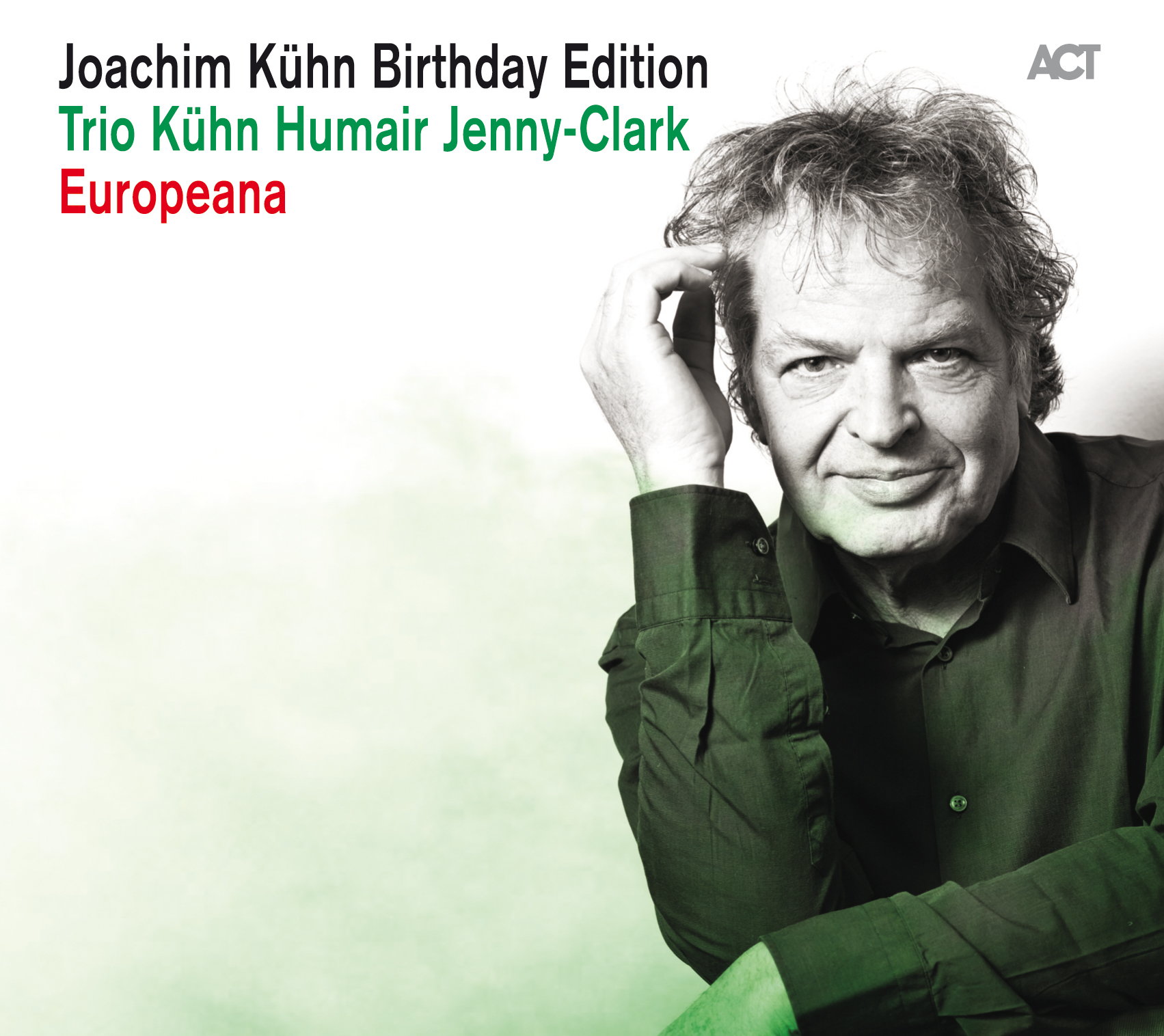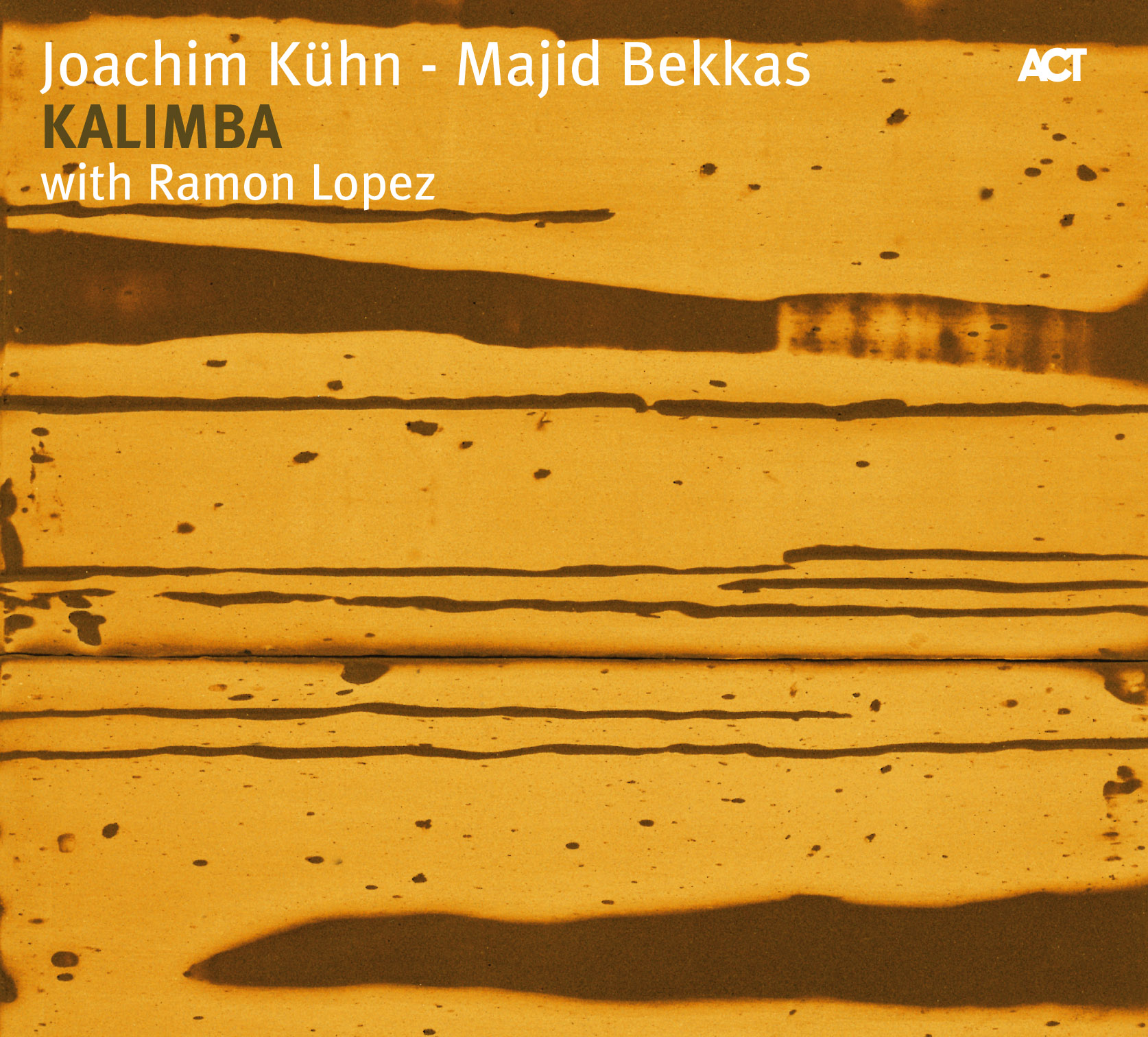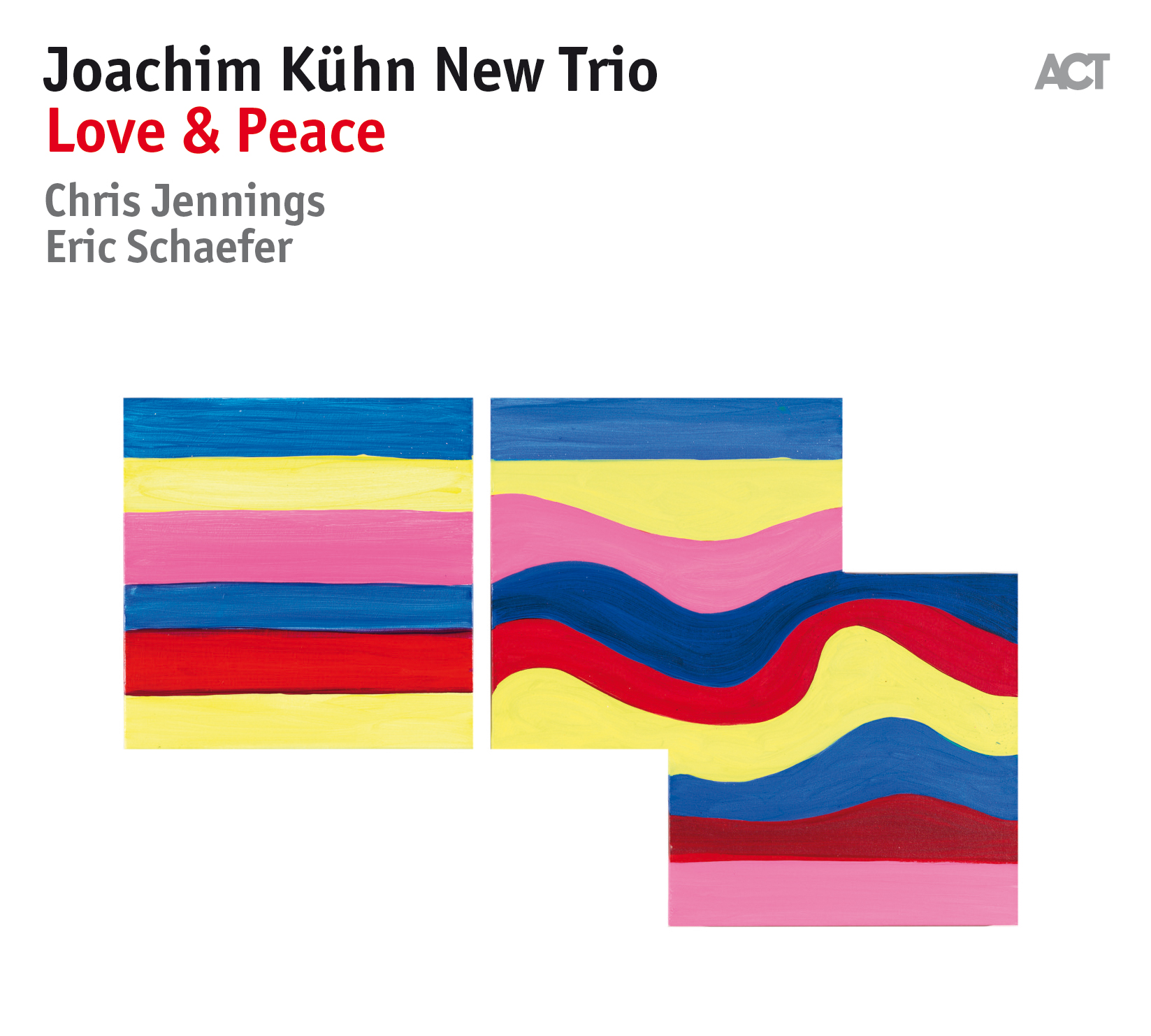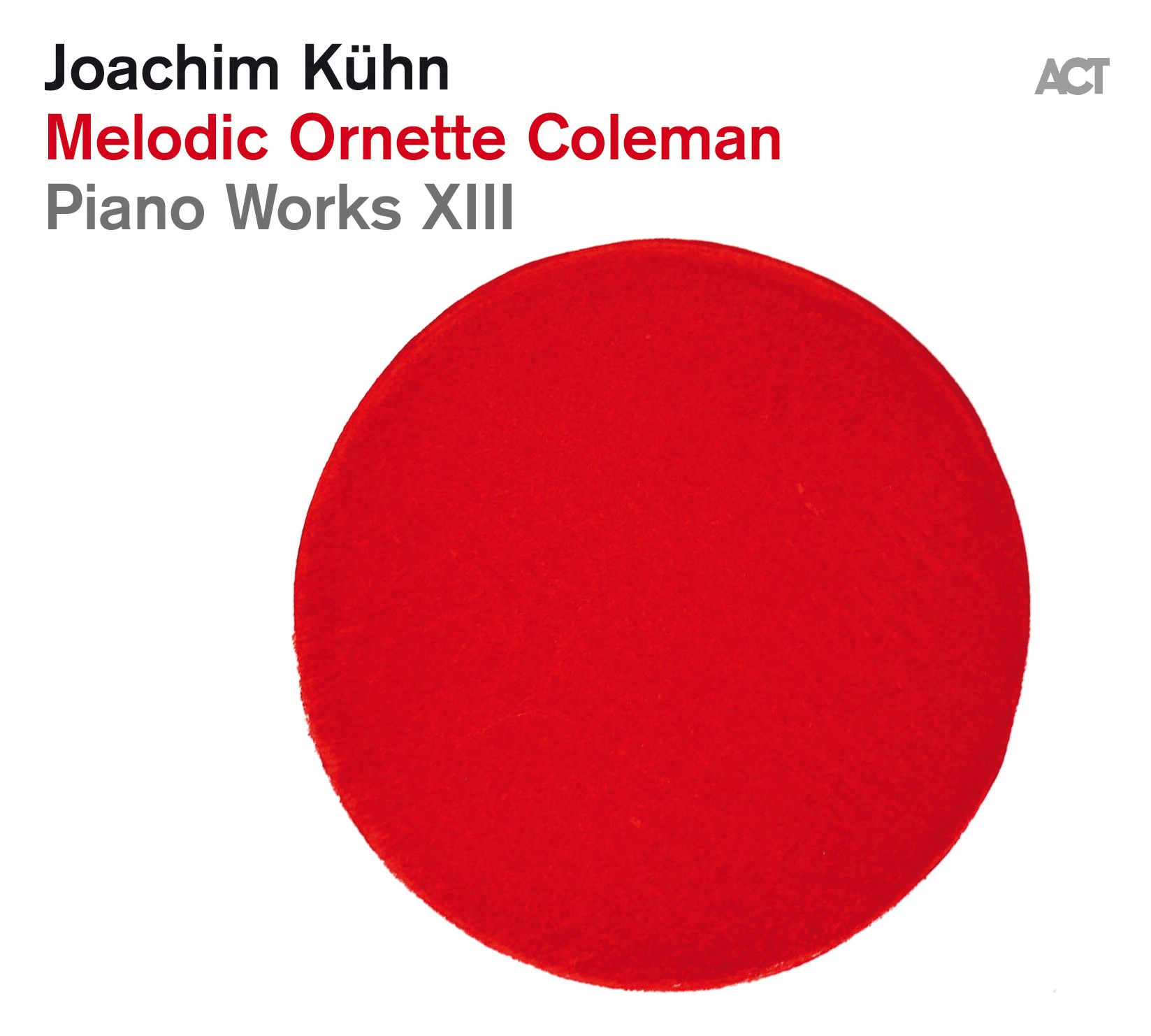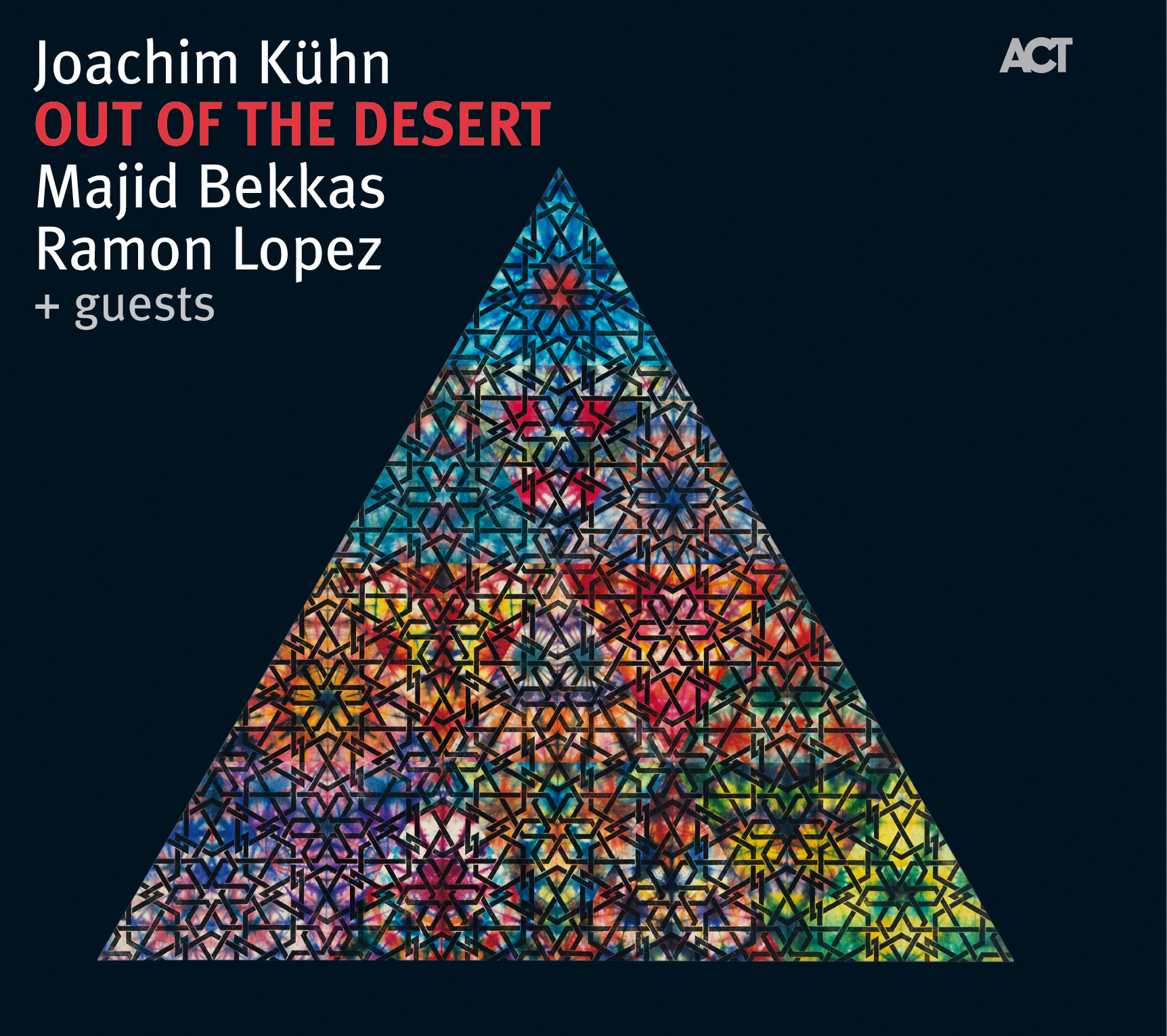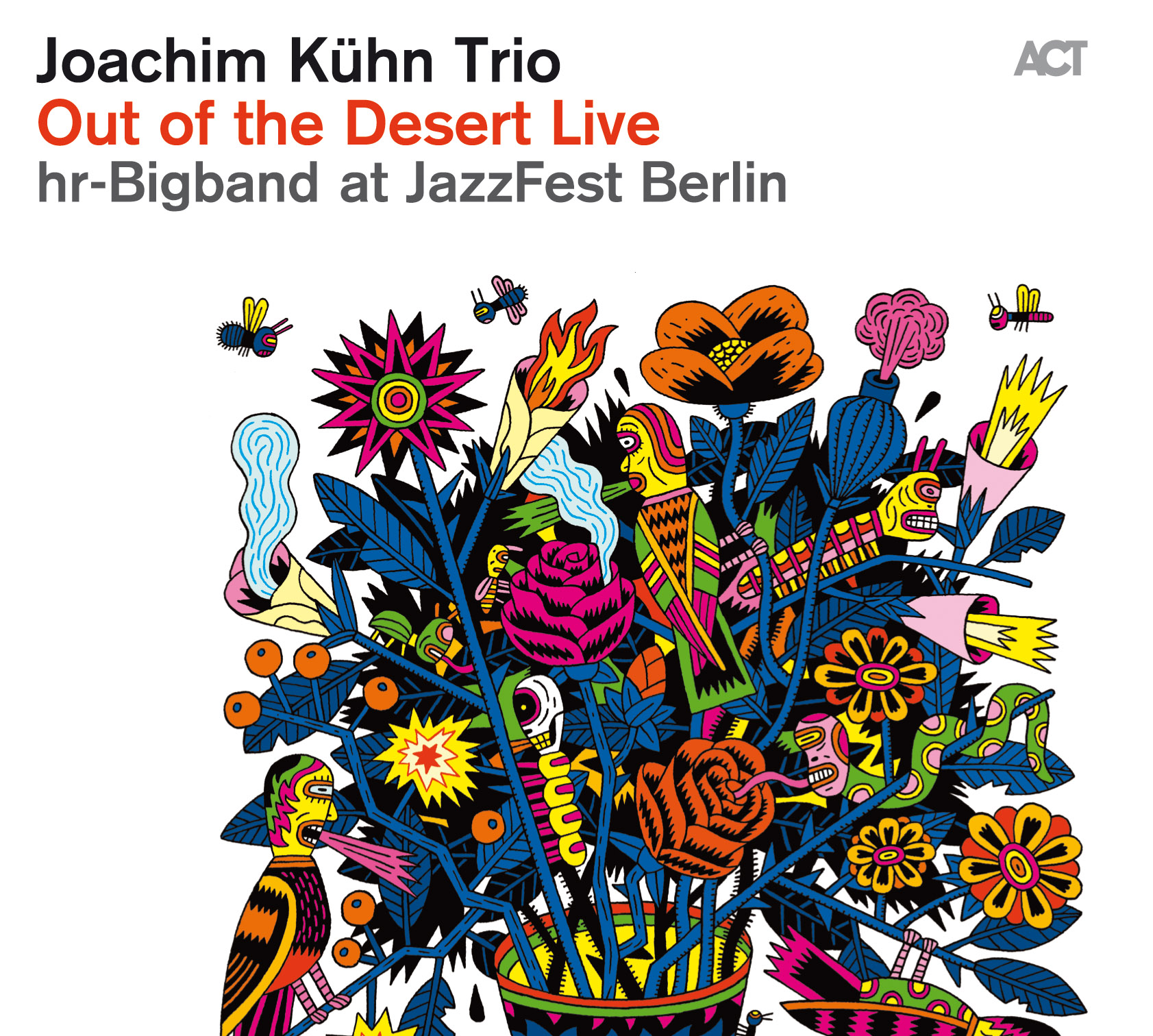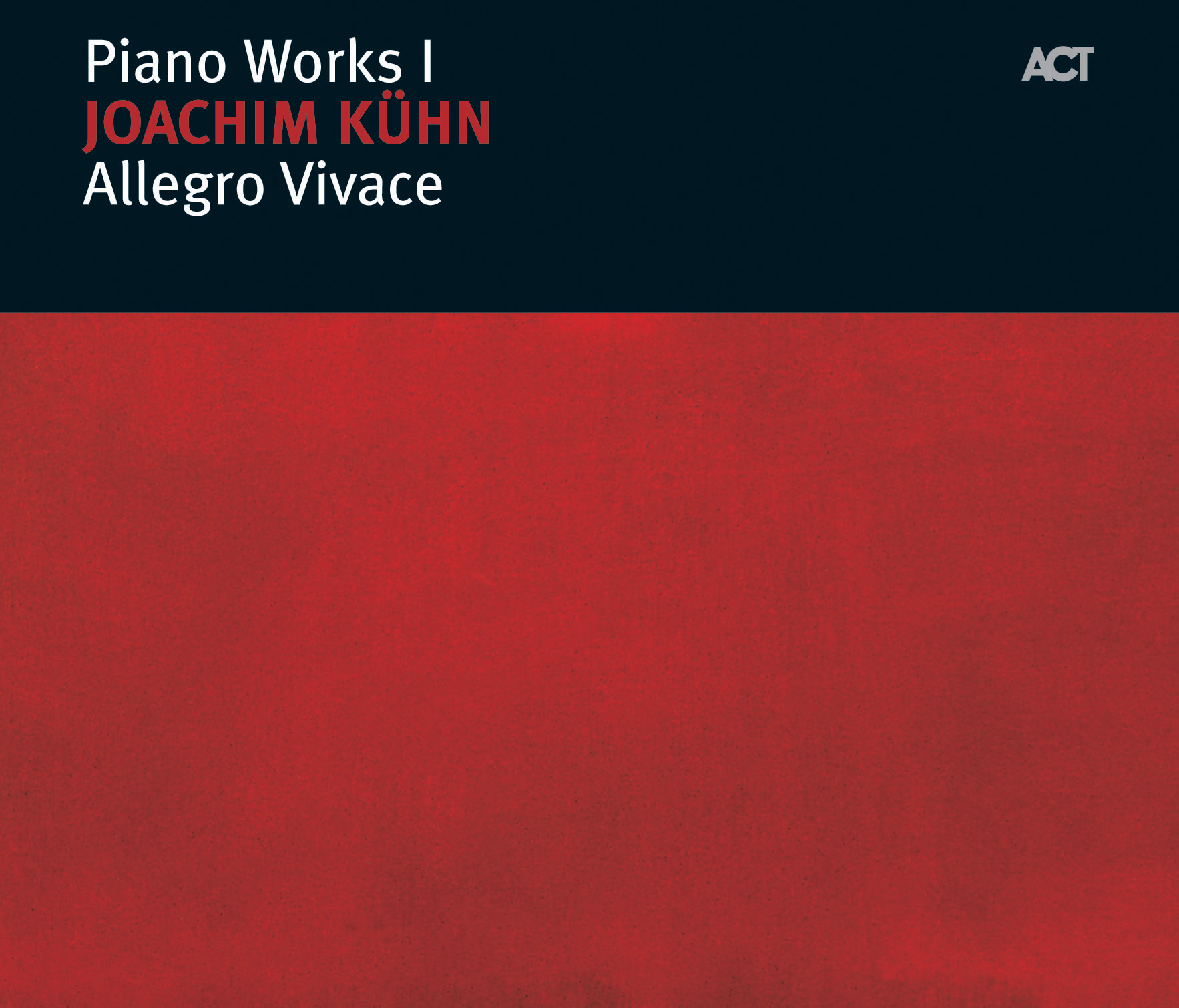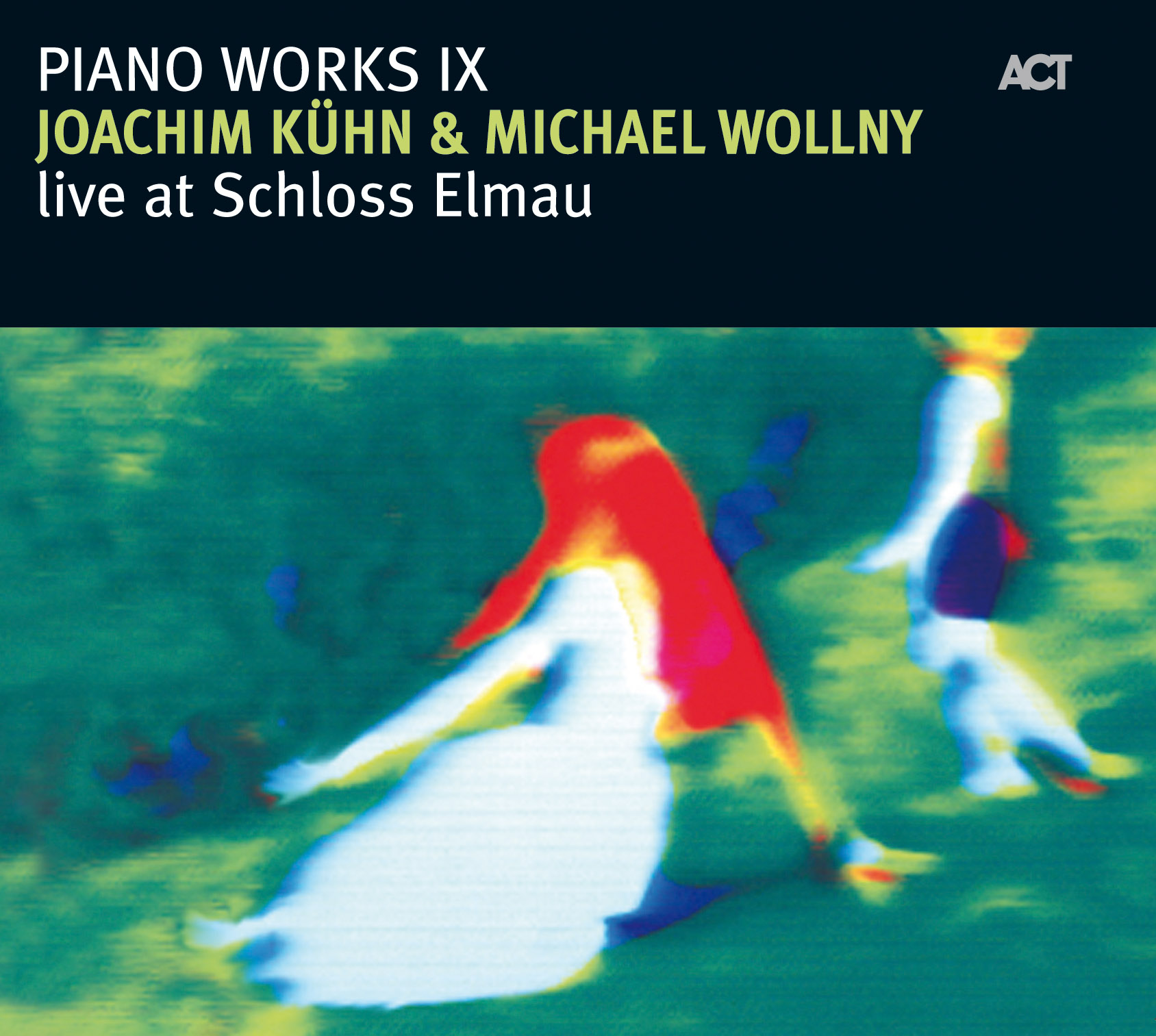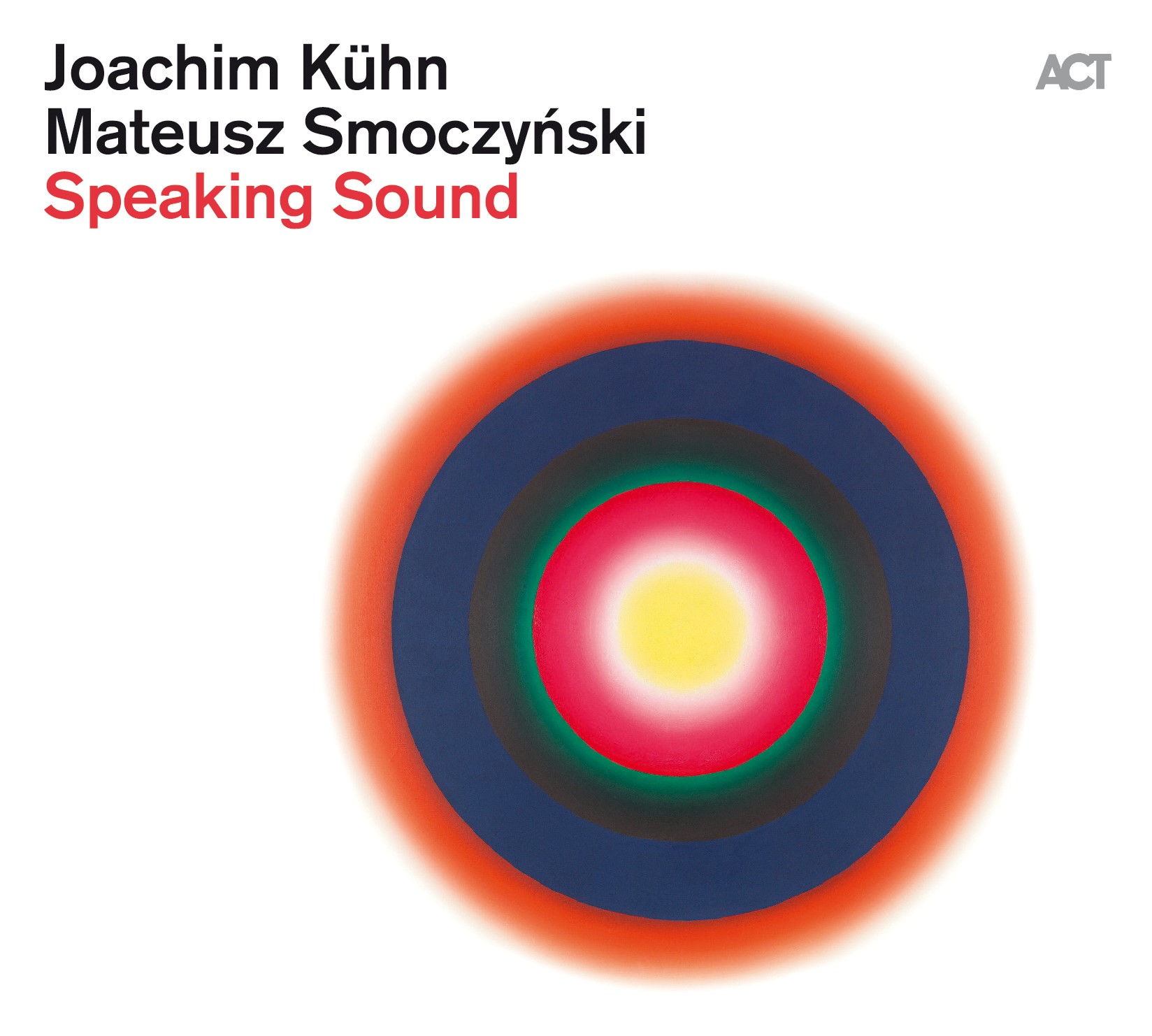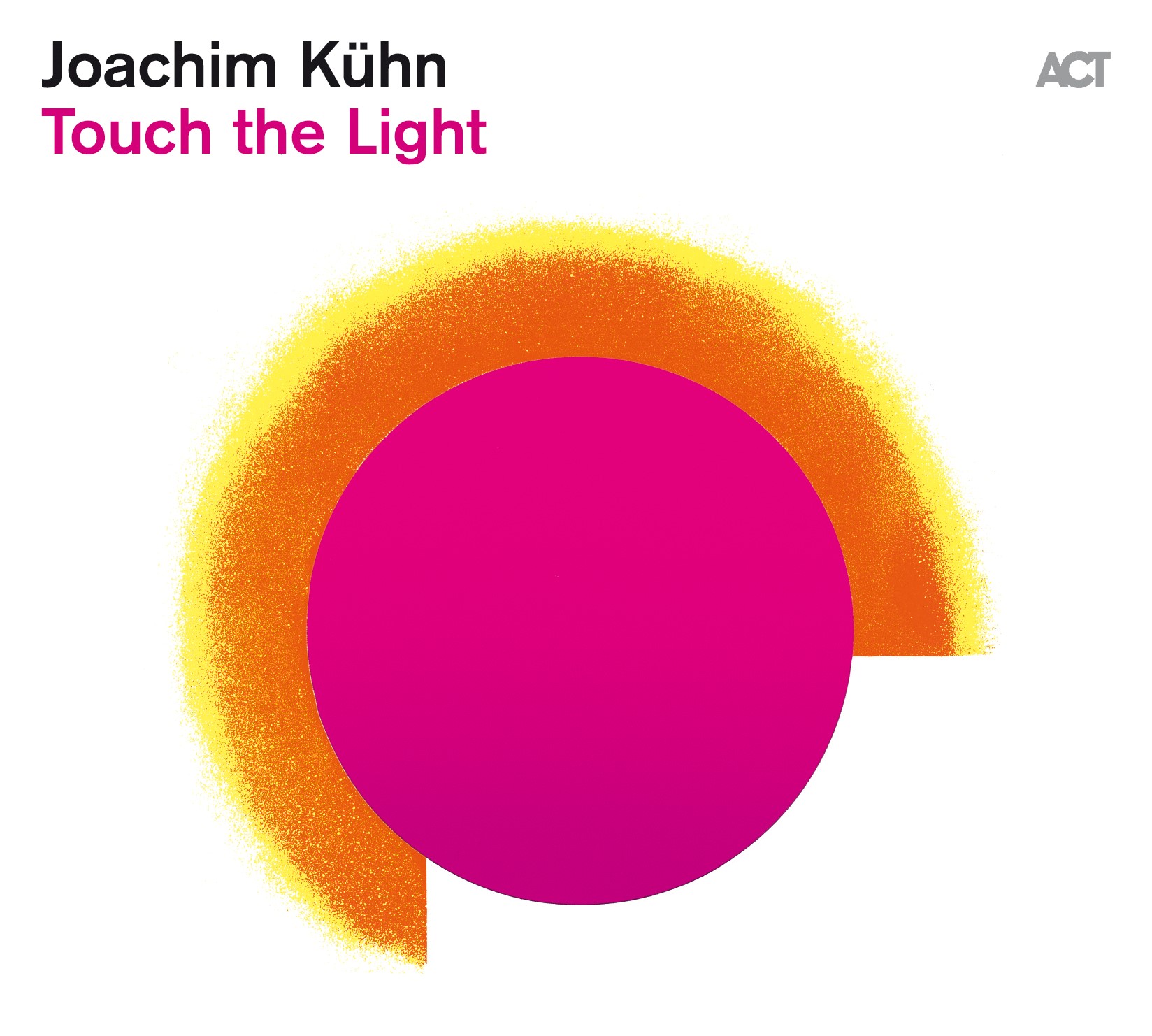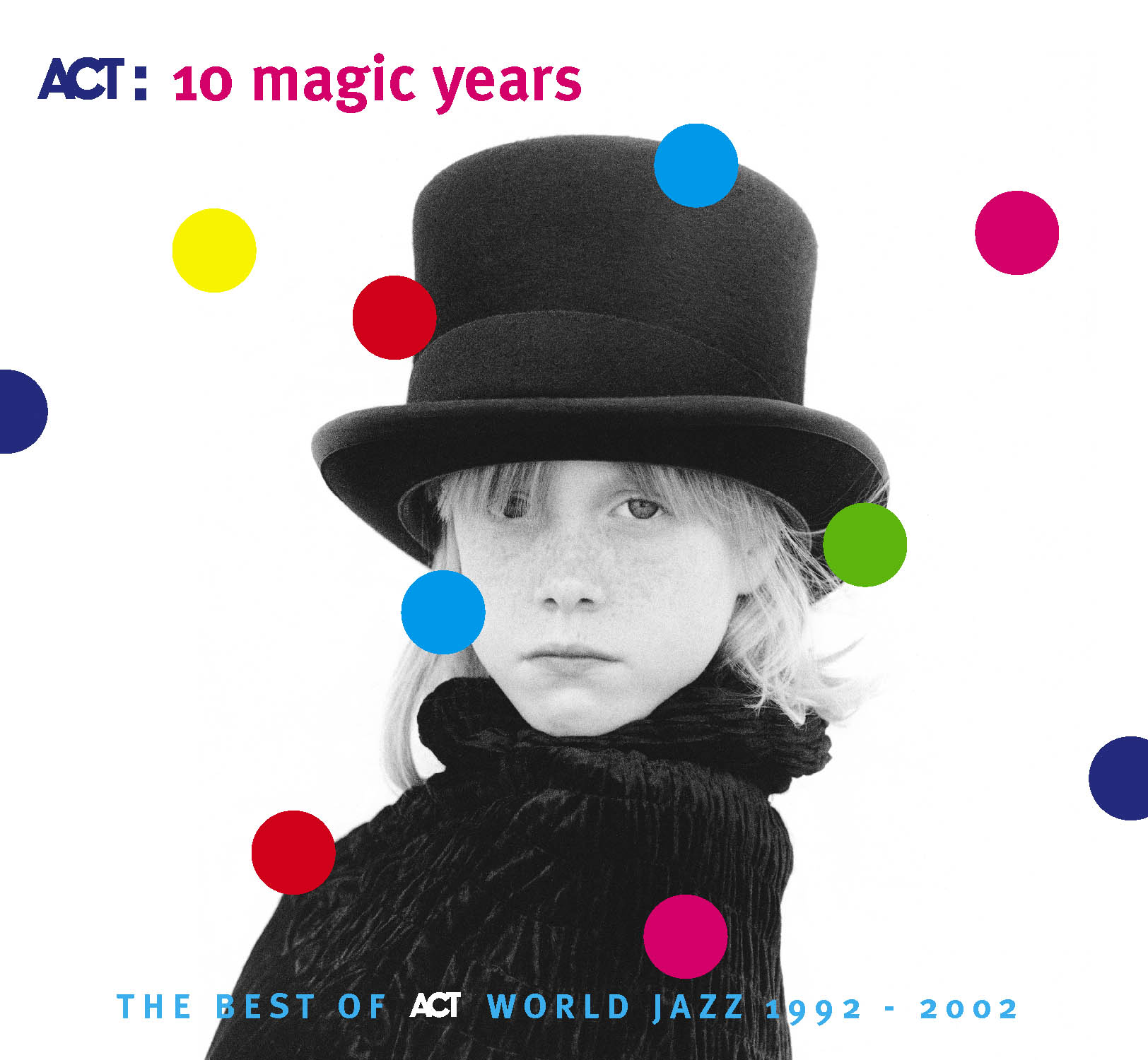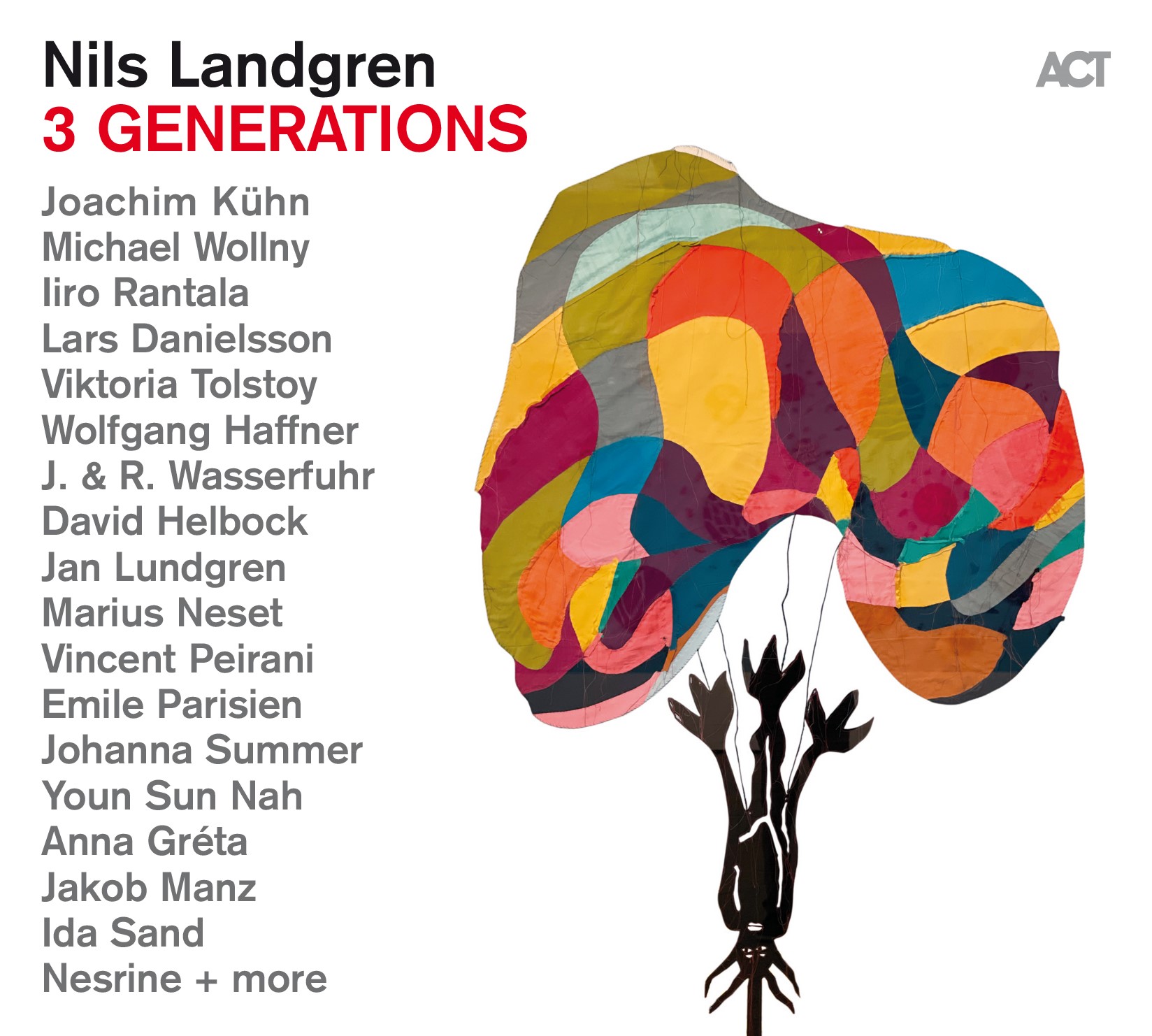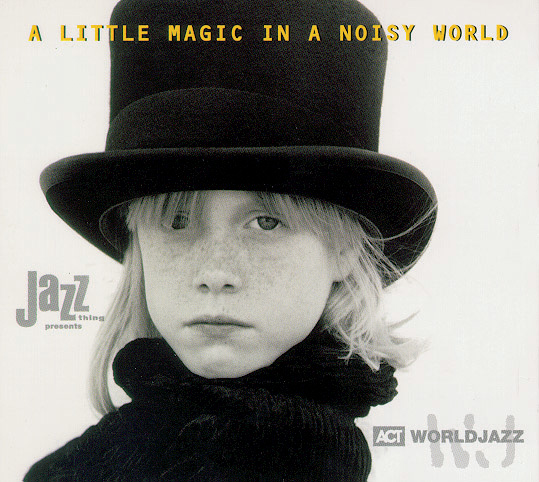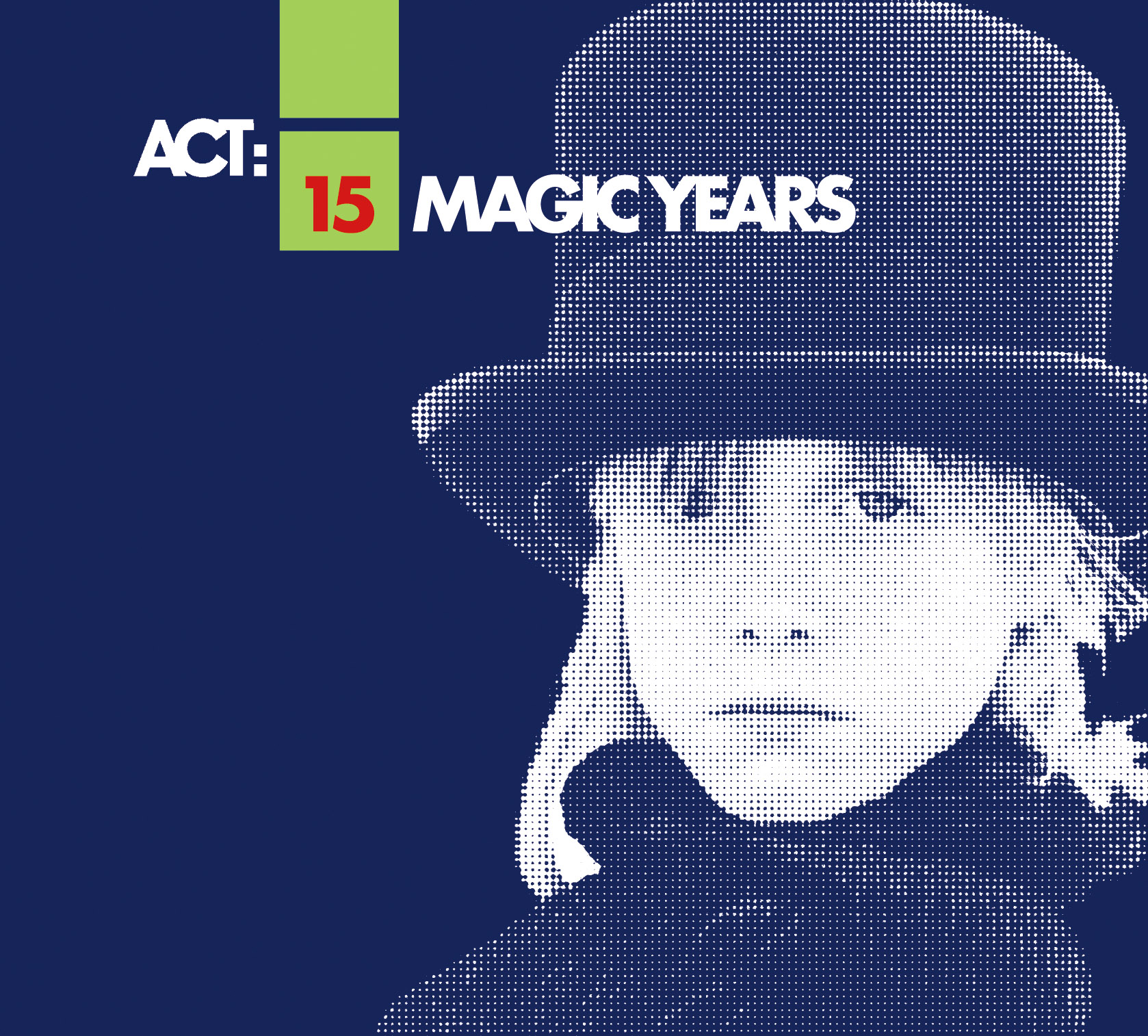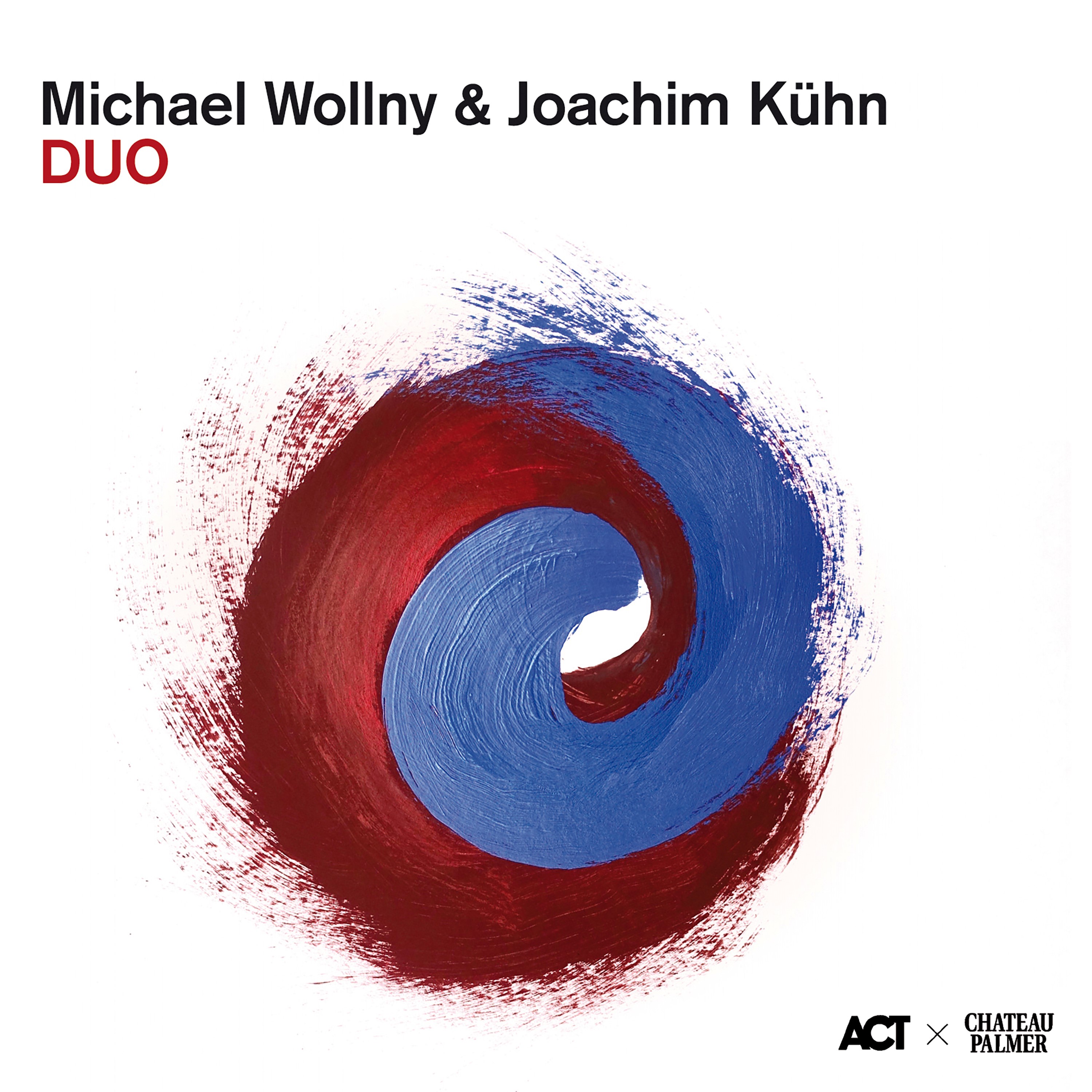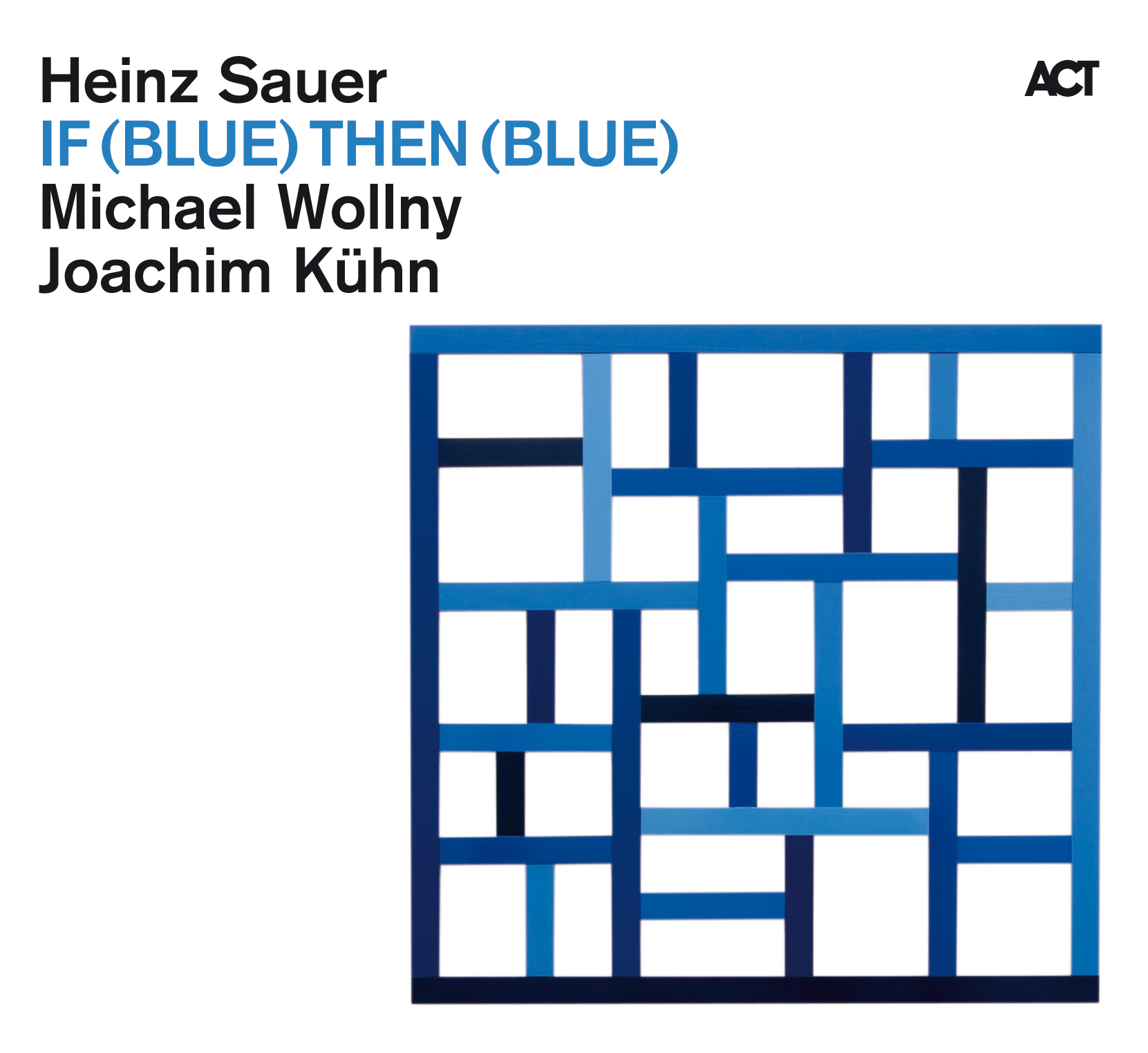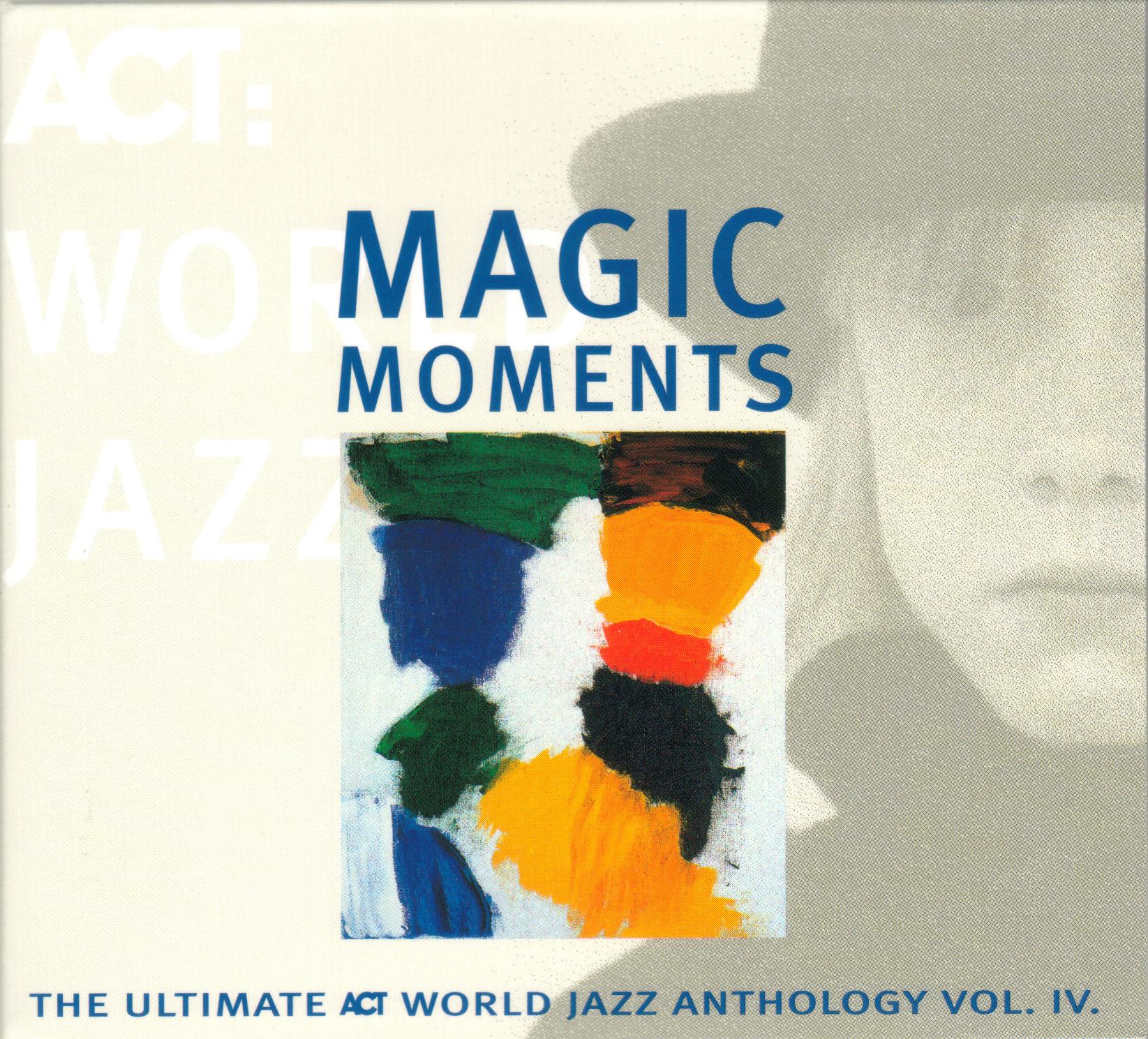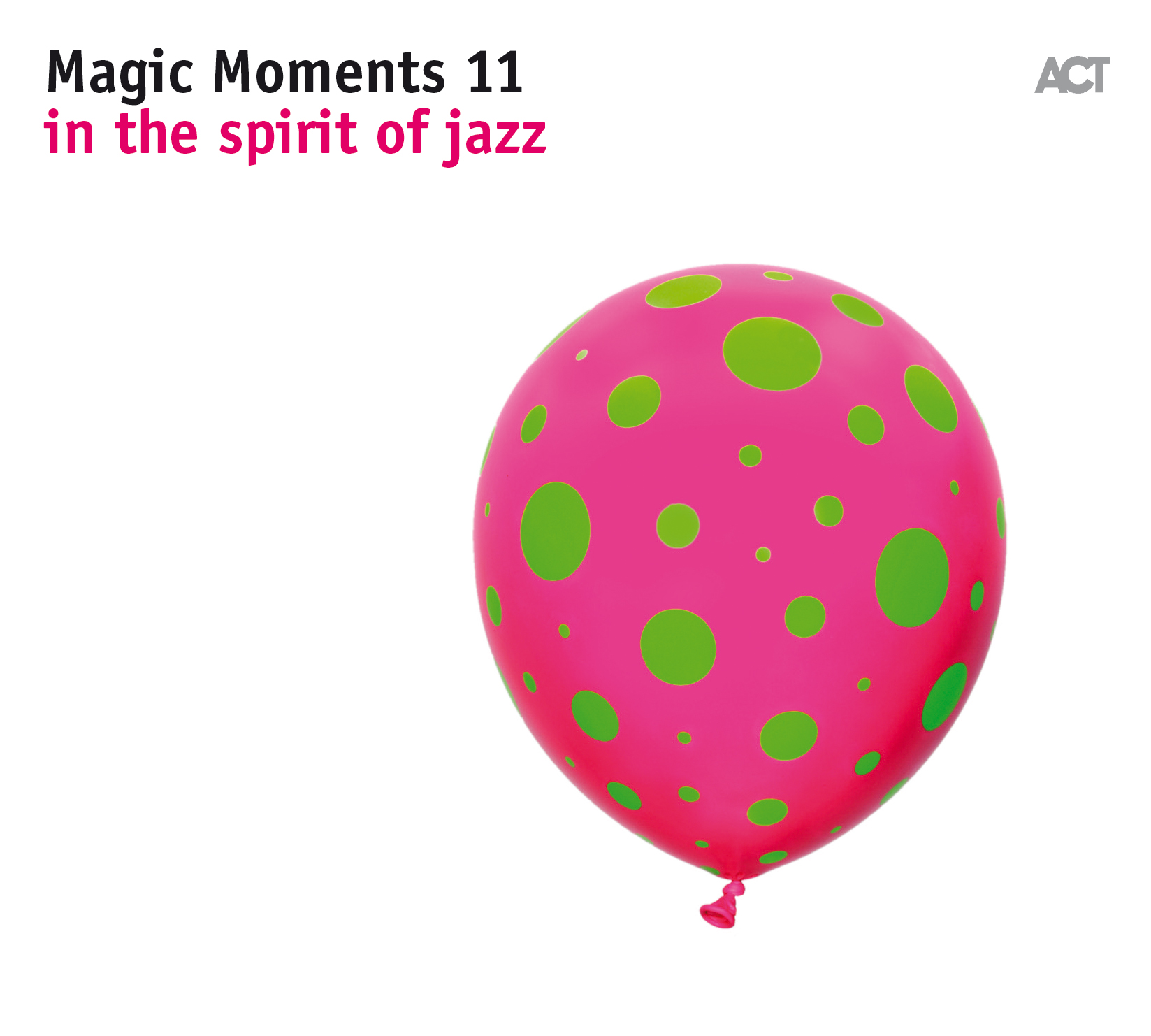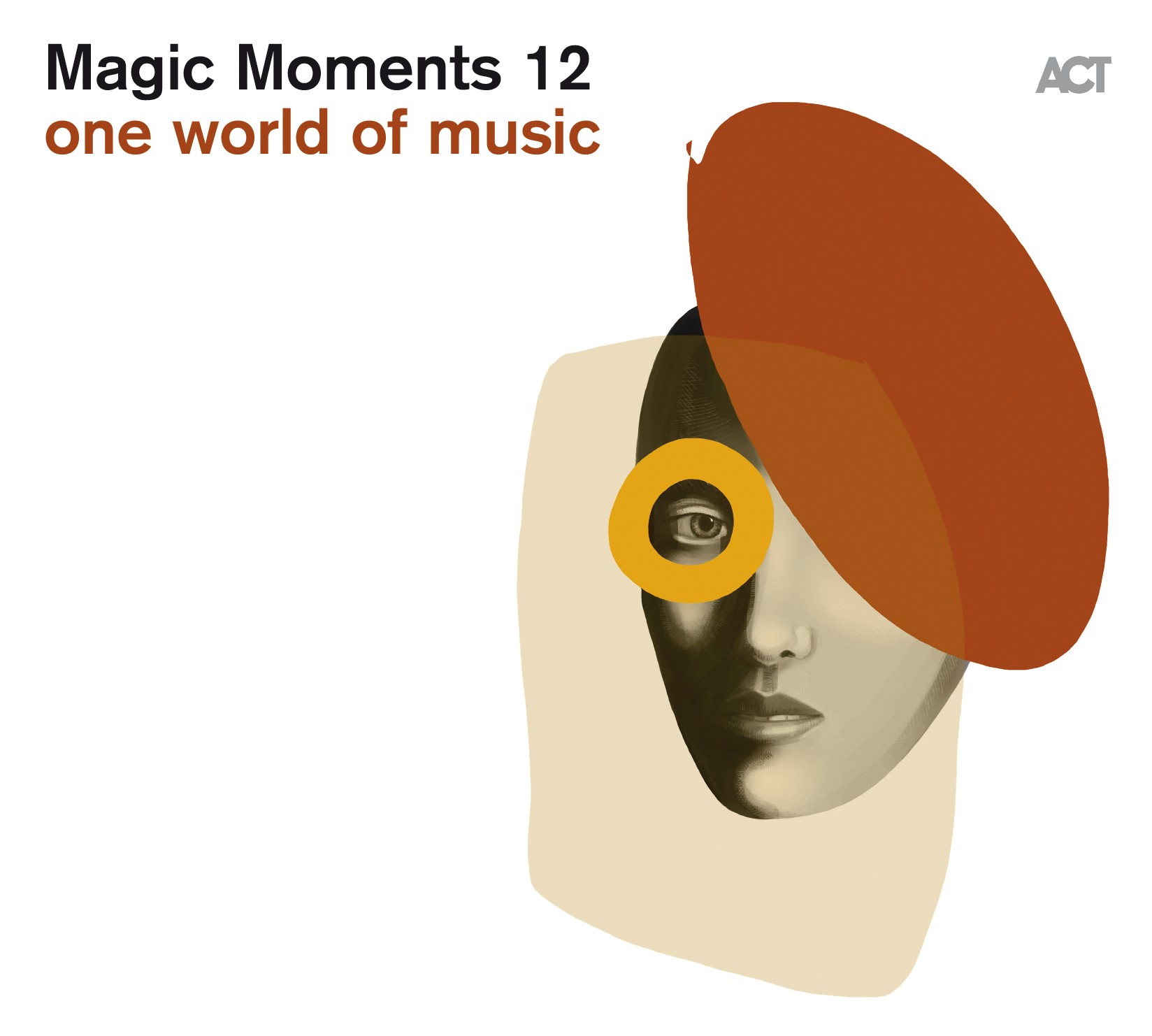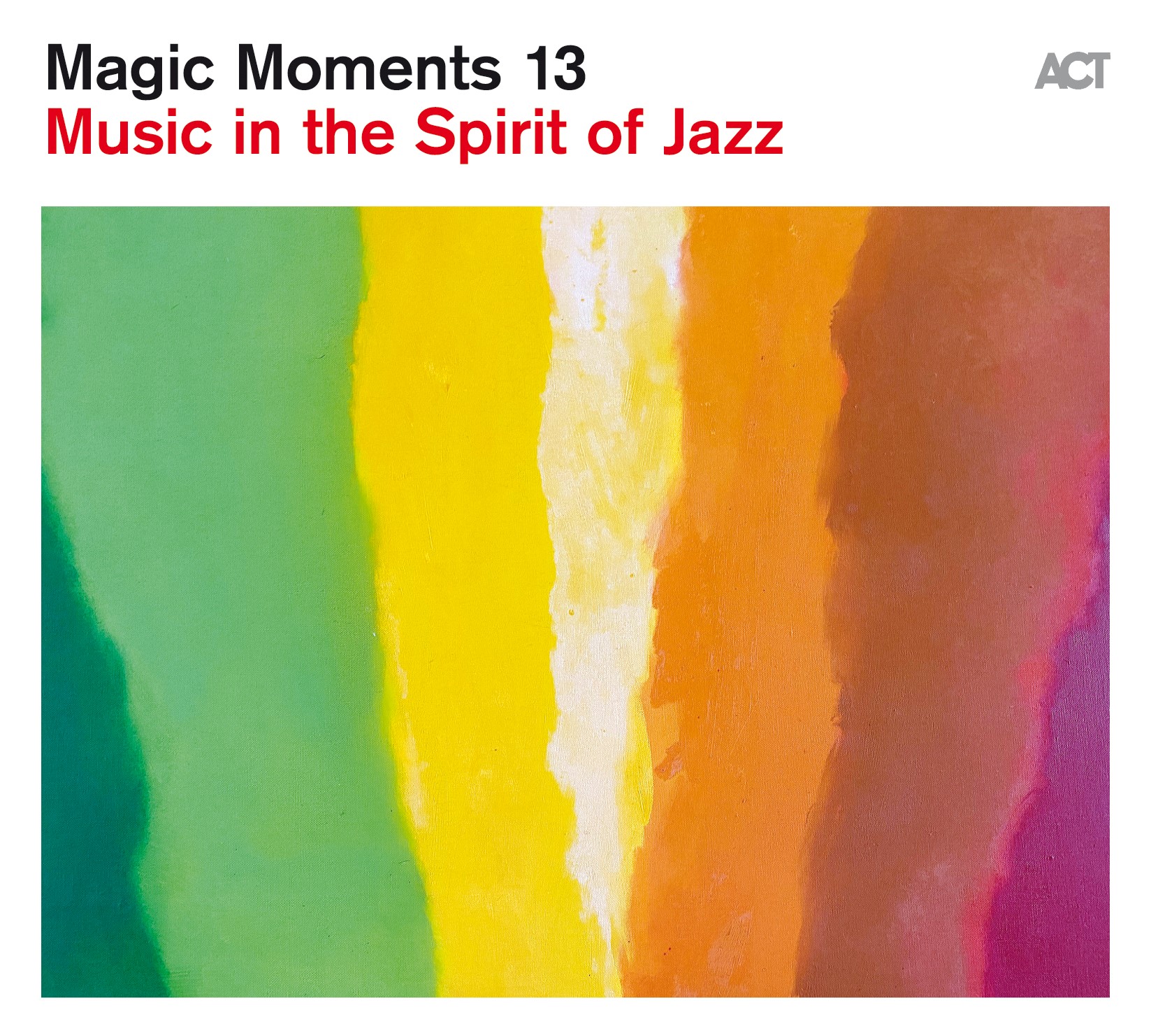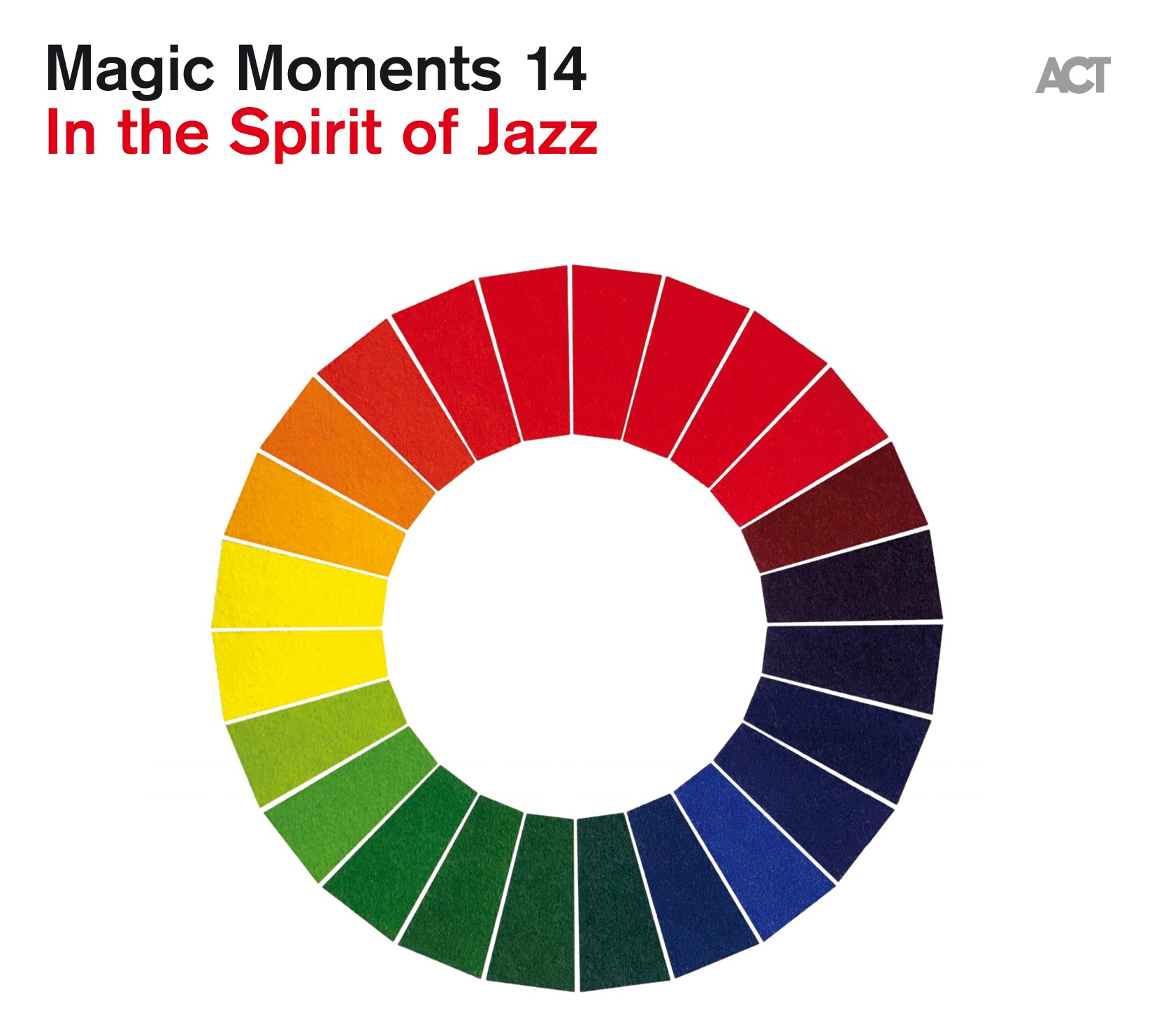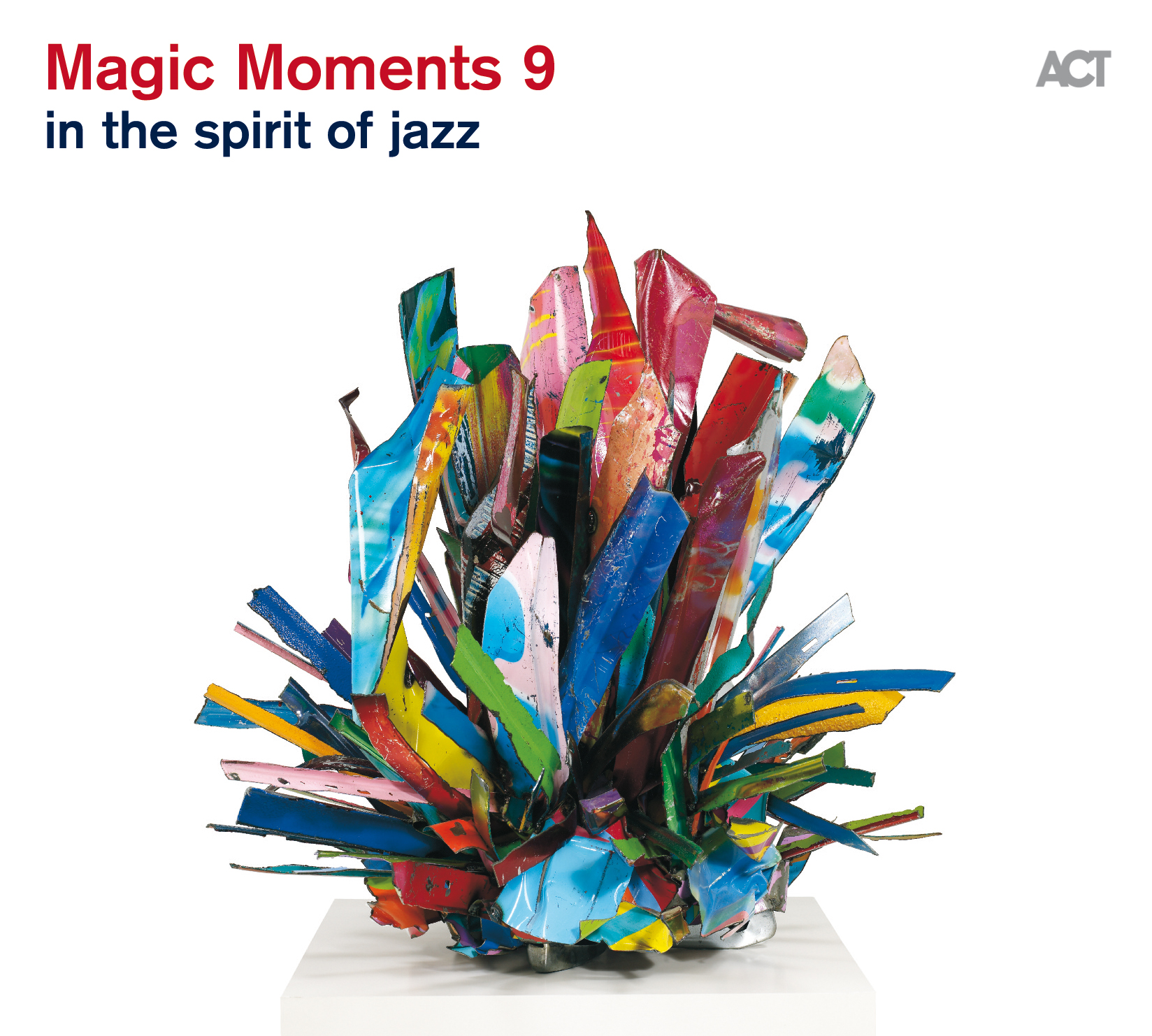Back
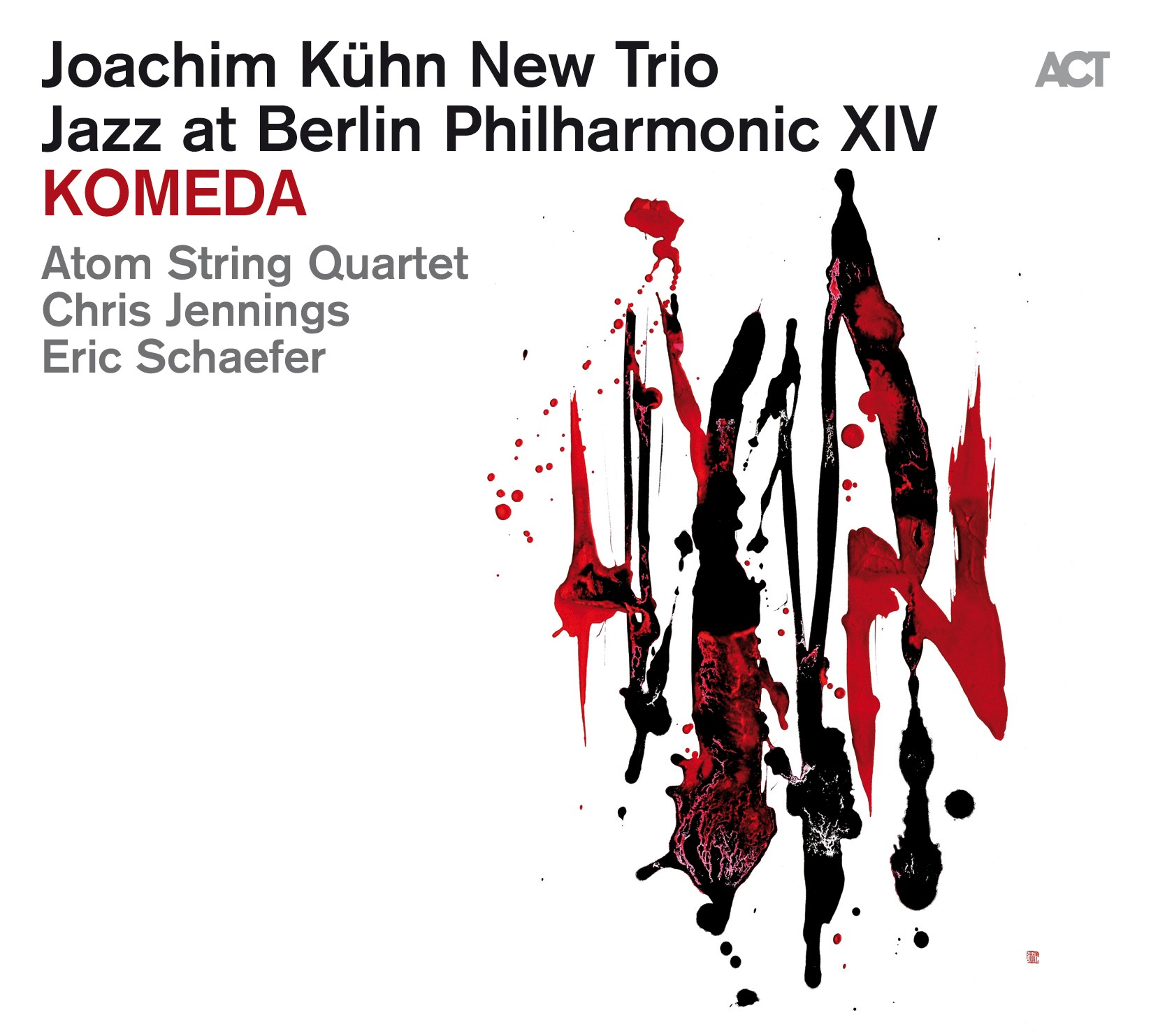
![Komeda - Jazz at Berlin Philharmonic XIV Komeda - Jazz at Berlin Philharmonic XIV]()


VÖ: 30.06.2023
Genre: Piano Jazz
Joachim Kühn / piano
Chris Jennings / bass
Eric Schaefer / drums
Atom String Quartet
Dawid Lubowicz / violin
Mateusz Smoczyński / violin, baritone violin
Michał Zaborski / viola
Krzysztof Lenczowski / cello
Recorded live in concert by Thomas Schöttl at Jazz at Berlin Philharmonic, Kammermusiksaal, October 14, 2022 Mixed and mastered by Klaus Scheuermann Produced by Joachim Kühn Curated by Siggi Loch Cover art by Shoshu
Krzysztof Komeda has legendary status in Polish jazz, and was also one of the pioneers of European jazz. His wider fame resides largely in his work as a film composer – he wrote the soundtracks for all of Roman Polanski’s early films, notably "Dance of the Vampires" and "Rosemary's Baby". Komeda died in 1969, tragically early, at the age of just 37, but left a hugely influential body of work. Joachim Kühn, now a jazz piano icon in his own right, is a great admirer of Komeda, whom he met in person in Warsaw in 1965. As part of the Jazz at Berlin Philharmonic concert series, curated by Siggi Loch, he performed a major tribute concert to him on 14 October 2022, at which he played in three formats: solo piano, with his New Trio, and alongside Poland’s Atom String Quartet.
Komeda may not be particularly well-known outside Poland, but in his native country his renown is at a similar level to Chopin’s. He is seen as an integral part of the rise of Polish jazz from its first underground stirrings to becoming one of the beacons of Polish culture. This was a movement forged by composers whose work went most of the way to being seen as a new kind of national music. Komeda’s influence extended beyond his native country in that he became a key figure in the emancipation of European jazz from the American tradition. At the same time as Lars Gullin and Jan Johansson in Sweden were taking similar approaches, Komeda fused Polish folk music and its tradition of melismatic singing with the characteristics of jazz. He thus became one of the great lyrical and melodic voices of mid-twentieth century music. His early death in an accident made him a cult figure in his native country. In his latter years, Komeda concentrated mainly on film music; Roman Polanski brought him to Hollywood in 1967. A highlight of his jazz work was undoubtedly the album "Astigmatic", recorded in 1965 in one single overnight session with the trumpeter Tomasz Stanko, among others. To this day, it regularly receives the accolade of being the most important jazz recording in Poland; the magazine Jazzwise listed it as one of their "jazz albums that shook the world."
For a tribute to Komeda, there could be no better guide than Joachim Kühn, the German pianist and jazz icon. The two men knew each other, indeed Kühn was in the studio and listened to the "Astigmatic" recording session in December 1965. The previous day, Komeda and Kühn had both played with their bands at the Warsaw Philharmonic: "For me, he was one of the great visionaries of European jazz, even then," Kühn recalls. Komeda's compositions have been part of the repertoire of the equally visionary Joachim Kühn ever since. Kühn leads the very small cohort of German jazz musicians who have achieved a genuinely international profile – something which has been the case for almost 60 years.
The Jazz at Berlin Philharmonic concert begins with the three tracks of the legendary album "Astigmatic": the title track plus "Kattorna" and "Svantetic". The line-up for this celebration evening is phenomenal with Kühn as very much the first among equals. He plays as part of his "New Trio" with Eric Schaefer on drums and Chris Jennings on bass, and also with the Atom String Quartet, whom Jazzwise called a "world class quartet” with a “forceful mix of classical and jazz improvisation": violinists Dawid Lubowicz and Mateusz Smoczyński, Michał Zaborski on viola and cellist Krzysztof Lenczowski. The seven extraordinarily fine musicians on stage create a heady mix from Komeda’s era-defining work: compelling free improvisations and superb soloing alternate with Komeda’s powerful melodies. The composer always thinks pictorially, but here we are treated to individual music-making at the highest level, and yet with an astonishing sixth sense of anticipation. The results are compelling, modern and timelessly beautiful.
Next follow a series of single arrangements from Komeda's other works, and these also draw the listener in with their seemingly perfect dramaturgy: Kühn's plays a quasi- romantic, wonderfully gentle solo on "After the Catastrophe"; next we hear his emotionally affecting duo with Mateusz Smoczyński on "Moja Ballada" from 1961; then, the Atom String Quartet version of "Crazy Girl" from Komeda's soundtrack to Polanski's "Knife in the Water"; thereafter comes a stunningly good trio arrangement of the well-known lullaby "Sleep Safe and Warm" from "Rosemary's Baby". After that, all the musicians re-assemble for an energetic finale, "Roman II". Several things are coming full circle here, not just musically but also in terms of Komeda’s and Kühn’s personal histories. What they have in common - almost tangibly so - is that jazz was quite literally the window which gave them their freedom. For a time, Krzysztof Trzciński (his real birth-name) was able to hide his musical identity behind his profession as an ear, nose and throat doctor, using the pseudonym Komeda for his music. But there came a point when the Polish state could no longer keep his popularity under wraps. Joachim Kühn’s story, on the other hand, is that he escaped from the paternalism of the GDR regime at the age of 22 when he fled to the West. Joachim’s brother Rolf gave him some initial help to establish his international career, and that led Joachim to work in the USA, France and Spain, but, most importantly, it was the escape through music which gave him his artistic freedom.
Another, very personal circle closes at the end of the “Jazz at Berlin Philharmonic” Komeda concert. Joachim Kühn plays as an encore "My Brother Rolf" in memory of his brother who had died shortly before.
Chris Jennings / bass
Eric Schaefer / drums
Atom String Quartet
Dawid Lubowicz / violin
Mateusz Smoczyński / violin, baritone violin
Michał Zaborski / viola
Krzysztof Lenczowski / cello
Recorded live in concert by Thomas Schöttl at Jazz at Berlin Philharmonic, Kammermusiksaal, October 14, 2022 Mixed and mastered by Klaus Scheuermann Produced by Joachim Kühn Curated by Siggi Loch Cover art by Shoshu
Krzysztof Komeda has legendary status in Polish jazz, and was also one of the pioneers of European jazz. His wider fame resides largely in his work as a film composer – he wrote the soundtracks for all of Roman Polanski’s early films, notably "Dance of the Vampires" and "Rosemary's Baby". Komeda died in 1969, tragically early, at the age of just 37, but left a hugely influential body of work. Joachim Kühn, now a jazz piano icon in his own right, is a great admirer of Komeda, whom he met in person in Warsaw in 1965. As part of the Jazz at Berlin Philharmonic concert series, curated by Siggi Loch, he performed a major tribute concert to him on 14 October 2022, at which he played in three formats: solo piano, with his New Trio, and alongside Poland’s Atom String Quartet.
Komeda may not be particularly well-known outside Poland, but in his native country his renown is at a similar level to Chopin’s. He is seen as an integral part of the rise of Polish jazz from its first underground stirrings to becoming one of the beacons of Polish culture. This was a movement forged by composers whose work went most of the way to being seen as a new kind of national music. Komeda’s influence extended beyond his native country in that he became a key figure in the emancipation of European jazz from the American tradition. At the same time as Lars Gullin and Jan Johansson in Sweden were taking similar approaches, Komeda fused Polish folk music and its tradition of melismatic singing with the characteristics of jazz. He thus became one of the great lyrical and melodic voices of mid-twentieth century music. His early death in an accident made him a cult figure in his native country. In his latter years, Komeda concentrated mainly on film music; Roman Polanski brought him to Hollywood in 1967. A highlight of his jazz work was undoubtedly the album "Astigmatic", recorded in 1965 in one single overnight session with the trumpeter Tomasz Stanko, among others. To this day, it regularly receives the accolade of being the most important jazz recording in Poland; the magazine Jazzwise listed it as one of their "jazz albums that shook the world."
For a tribute to Komeda, there could be no better guide than Joachim Kühn, the German pianist and jazz icon. The two men knew each other, indeed Kühn was in the studio and listened to the "Astigmatic" recording session in December 1965. The previous day, Komeda and Kühn had both played with their bands at the Warsaw Philharmonic: "For me, he was one of the great visionaries of European jazz, even then," Kühn recalls. Komeda's compositions have been part of the repertoire of the equally visionary Joachim Kühn ever since. Kühn leads the very small cohort of German jazz musicians who have achieved a genuinely international profile – something which has been the case for almost 60 years.
The Jazz at Berlin Philharmonic concert begins with the three tracks of the legendary album "Astigmatic": the title track plus "Kattorna" and "Svantetic". The line-up for this celebration evening is phenomenal with Kühn as very much the first among equals. He plays as part of his "New Trio" with Eric Schaefer on drums and Chris Jennings on bass, and also with the Atom String Quartet, whom Jazzwise called a "world class quartet” with a “forceful mix of classical and jazz improvisation": violinists Dawid Lubowicz and Mateusz Smoczyński, Michał Zaborski on viola and cellist Krzysztof Lenczowski. The seven extraordinarily fine musicians on stage create a heady mix from Komeda’s era-defining work: compelling free improvisations and superb soloing alternate with Komeda’s powerful melodies. The composer always thinks pictorially, but here we are treated to individual music-making at the highest level, and yet with an astonishing sixth sense of anticipation. The results are compelling, modern and timelessly beautiful.
Next follow a series of single arrangements from Komeda's other works, and these also draw the listener in with their seemingly perfect dramaturgy: Kühn's plays a quasi- romantic, wonderfully gentle solo on "After the Catastrophe"; next we hear his emotionally affecting duo with Mateusz Smoczyński on "Moja Ballada" from 1961; then, the Atom String Quartet version of "Crazy Girl" from Komeda's soundtrack to Polanski's "Knife in the Water"; thereafter comes a stunningly good trio arrangement of the well-known lullaby "Sleep Safe and Warm" from "Rosemary's Baby". After that, all the musicians re-assemble for an energetic finale, "Roman II". Several things are coming full circle here, not just musically but also in terms of Komeda’s and Kühn’s personal histories. What they have in common - almost tangibly so - is that jazz was quite literally the window which gave them their freedom. For a time, Krzysztof Trzciński (his real birth-name) was able to hide his musical identity behind his profession as an ear, nose and throat doctor, using the pseudonym Komeda for his music. But there came a point when the Polish state could no longer keep his popularity under wraps. Joachim Kühn’s story, on the other hand, is that he escaped from the paternalism of the GDR regime at the age of 22 when he fled to the West. Joachim’s brother Rolf gave him some initial help to establish his international career, and that led Joachim to work in the USA, France and Spain, but, most importantly, it was the escape through music which gave him his artistic freedom.
Another, very personal circle closes at the end of the “Jazz at Berlin Philharmonic” Komeda concert. Joachim Kühn plays as an encore "My Brother Rolf" in memory of his brother who had died shortly before.
He wrote the soundtracks for film classics such as "Dance of the Vampires" and "Rosemary's Baby", and made jazz respectable in his home country of Poland: The pianist and composer Krzysztof Komeda is one of the most influential musicians of European jazz. His work continues to have an impact to this day. In "Jazz at Berlin Philharmonic" Joachim Kühn recalls this legend - solo, with his New Trio and the Polish Atom String Quartet. A homage...
Joachim Kühn
Around his 80th birthday on 15 March 2024, the piano artistry of Joachim Kühn, Germany’s pre-eminent jazz pianist, is in its prime. Whereas he is able to draw on a vast wealth of experience from a life fully lived, his powers to concentrate entirely on the present and to live in the moment - things he has done all his life - are undimmed. Kühn’s 80th birthday is also a good moment to reflect on the extent to which the pianist has broken through internationally, and now has his place among the greats in a way that no other jazz pianist from Germany has achieved. He can look back on decades of creative work in which he has not just witnessed jazz history and adapted miraculously to it, but has also taken a role in shaping it and carrying it forward. Joachim Kühn has had a 50-year association with ACT founder Siggi Loch, stretching back to 1972 and the album "Springfever", released on Atlantic Records. Their partnership has prospered on ACT since 1992 and found a fruitful continuation in the current decade under Andreas Brandis. Kühn's 19 albums on ACT show a musician with a kaleidoscopic range. At the larger end of the scale is the jazz symphony "Europeana", other highlights include the Kühn / Bekkas / Lopez trio, which links North Africa with Europe, the Joachim Kühn New Trio, his fruitful cross-generational duo with Michael Wollny, and several solo recordings. In his playing, Joachim Kühn combines an irrepressible striving for artistic freedom with an unerring sense of musical quality in a way that is always truly compelling. Another hallmark is the way in which his playful lightness is always tinged with such strong and deep emotion. Each of Joachim Kühn's concerts or recordings is a special event. His beguiling improvisations unfold and develop in such fascinating ways, they seem to be happening of their own accord. And this is true not just of his solo performances, but equally in both his work in the New Trio with bassist Chris Jennings and drummer Eric Schaefer and his duo with Michael Wollny, - thirty-five years younger than him - which has been documented on two ACT albums, most recently "DUO", released in early 2024. Kühn and Wollny are kindred spirits in the depth of their musical sensibilities, in their exuberant imagination, their determination never to compromise artistically, and in their endeavours to transcend musical boundaries. Alongside echoes of the great classical and romantic piano tradition, Joachim Kühn - particularly in the trio- reveals how strongly and how fully he has assimilated the essence of jazz. Shadows and resonances of the past are transformed alchemically into an innovatively orientated sound language which is wholly his own.
Joachim Kühn's career is remarkable in the way it embraces different eras, countries and continents, and yet, despite the musical and political upheavals of the pianist’s eight decades, there is a constant: the pursuit of musical freedom. Born in Leipzig in 1944, he has had a homing instinct for the greats of the music since his earliest youth: John Coltrane, Ornette Coleman, Bach. His older brother, clarinettist Rolf Kühn, became his role model and later his musical partner. He had a long, intense and significant collaboration with his early idol Ornette Coleman. And his admiration for Johann Sebastian Bach became a powerful memory in his joint music-making with the choir from Bach’s own church, the Leipzig Thomanerchor. Joachim Kühn's career in music has been so many-faceted, a brief summary will never do it justice: free jazz in the cauldron of the sixties in Paris, fusion music in California, modern jazz in New York, solos, duos, trios, countless records, and finally the decision to settle in Ibiza, which is the base from which the pianist travels the world.
For someone like Joachim Kühn, who lives one hundred per cent through his immersion in music, there is no standing still. He is driven by a force within which leads him to continue to develop all the time. It would be understandable if he were just to stand back and take pride in all that he has achieved - but he won't. He has played with the elite of jazz, with musicians such as Ornette Coleman, Archie Shepp, Pharoah Sanders and Joe Henderson. He recorded "Impressions Of New York" with his brother Rolf and Coltrane's bassist Jimmy Garrison. His trio with Daniel Humair and Jean-François Jenny-Clark became an integral part of European jazz history. And in the trios with Majid Bekkas / Ramón López and Rabih Abou-Khalil, he succeeded in opening up jazz to the cultures of the world. But for this pianist, the search is never-ending. He threw off all constraints and limits from the perspective of technique long ago. What matters to him, he says, is pure music. And to make it with the greatest urgency and truthfulness.
CD
€17.50*
CD
€17.50*
Vinyl
€27.00*
SACD
€18.00*
2-CD
€20.00*
CD
€17.50*
CD
€17.50*
CD
€17.50*
CD
€17.50*
CD
€17.50*
Joachim Kühn
Tip
CD
€17.50*
CD
€17.50*
Tip
SACD
€18.00*
Vinyl
€27.00*
CD
€17.50*
2-CD
€20.00*
CD
€17.50*
CD
€17.50*
